

Exclusively for FM industry leaders

In this issue:
Calum McLaren of Elior UK talks about the company’s new B&I regional brand
In addition, we also hear from Business Watch Guarding, Dura Pump, PTSG, Portico, NEO and more!







Frederic Lafon
Senior Manager of Hospitality, Building Automation, Honeywell, on helping Heathrow’s largest hotel digitise fire safety with zero disruption.

Sponsored by


Welcome to July’s edition FM Director
As always, this month we have an abundance of insightful interviews for you, such as our latest cover star – Frederic Lafon, Senior Manager of Hospitality, Building Automation, Honeywell. In his article, he talks to us about Honeywell’s Digital Leap in Hotel Fire Safety and how the company recently helped The Atrium Hotel - one of Heathrow’s largest independent hotels – upgrade its entire fire safety system without disturbing a single guest.
We also hear from Calum McLaren, divisional director for Elior UK’s regional business and industry division, about the company’s new B&I regional brand that was designed to meet the evolving needs of tomorrow’s workforce.
In addition, we also hear from Wayne Hopkinson, Contracts Manager at Business Watch Guarding, who explains why safeguarding isn’t just a policy obligation for those working within the education sector, it’s a critical responsibility that directly impacts student, staff and visitor safety, operations, finances, and reputation.

And as if that wasn’t enough, this month’s issue also features insights from other industry leaders such as Dura Pump, PTSG, Portico and NEO.
As always, I hope you enjoy this edition, and remember, please do reach out to me if you have anything you’d like to share about this fantastic industry.
Thanks,
Claire Middleton
claire.middleton@businessdailygroup.co.uk



















01482 782287
fmdirector@fmbusinessdaily.com

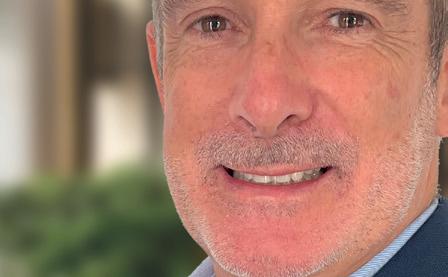



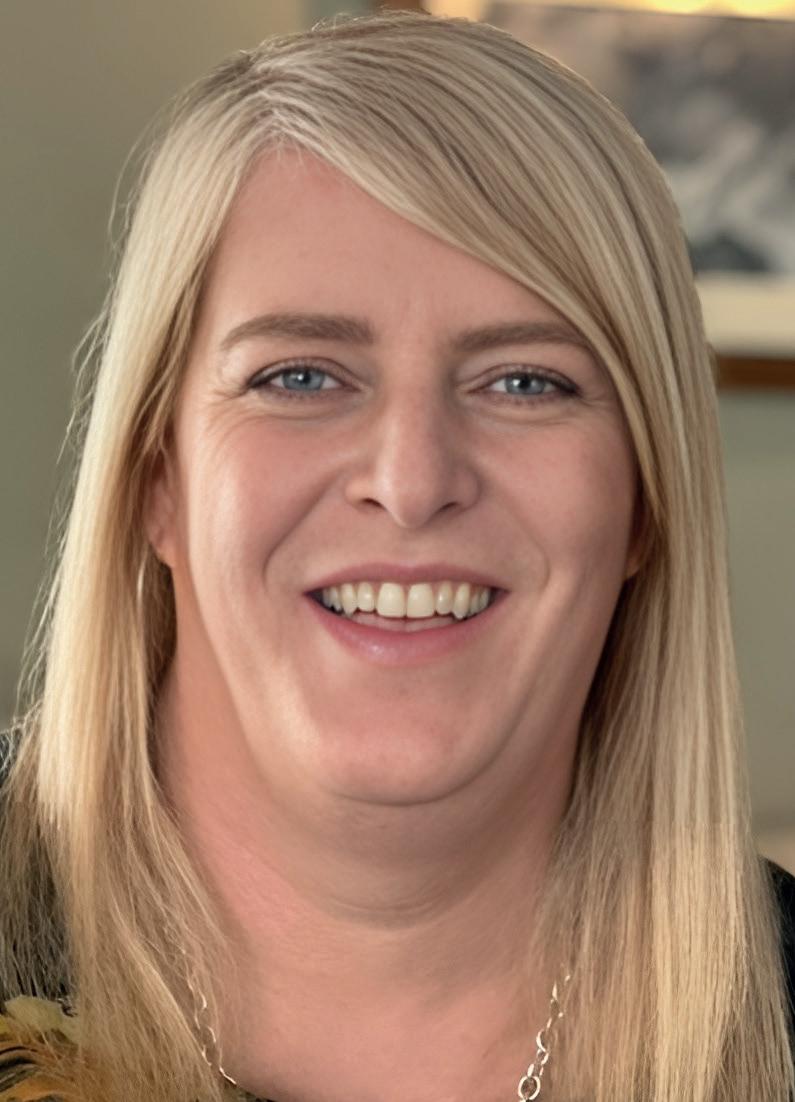
Beyond Compliance: Honeywell’s Digital Leap in Hotel Fire Safety
Frederic Lafon, Senior Manager of Hospitality, Building Automation, Honeywell, on helping Heathrow’s largest hotel digitise fire safety with zero disruption
Beyond Compliance: Why Physical Security is Fundamental to Safeguarding in Education
Wayne Hopkinson, Contracts Manager at Business Watch Guarding, explains why safeguarding isn’t just a policy obligation for those working within the education sector, it’s a critical responsibility that directly impacts student, staff and visitor safety, operations, finances, and reputation.
Breaking Barriers and Building Safety: PTSG Launches New Fire Consultancy
Tracy Gregory, general manager of PTSG’s new fire risk assessment service, brings over three decades of expertise, unwavering determination and a deeply human approach to an industry where both qualities are essential
Managing Editor Claire Middleton
and
Managing Director Cheryl Ellerington
Published by FM Business Daily, Linacre House, Dark Lane, Braunston NN11 7HU © 2025 FM Business Daily. All rights reserved. Reproduction of the contents of this magazine in any manner whatsoever is prohibited without prior consent from the publisher. No part of this magazine may be used or reproduced in any manner for the purpose of training artificial intelligence technologies or systems. For subscription enquiries and to make sure you get your copy of FM Director please ring 01482 782287 or email fmdirector@fmbusinessdaily.com The views expressed in the articles reflect the author’s opinions and do not necessarily reflect the views of the publisher and editor. The published material, adverts, editorials, images and all other content is published in good faith.
Beyond Compliance: Honeywell’s Digital Leap in Hotel Fire Safety
The unwritten rules: why workplace etiquette still matters, and what FM can do about it
Future-proofing workplace dining: Elior at Work
Pump expert shares top summer cooling system tips to keep public sector facilities operational this summer
Long-Lasting Protection: Cladding Coatings’ 15Year System for External Walls and Roofs
From cyber to strawberries
Demystifying Compliance: The Power of SSIP for Business Growth
NSS takes flight: why drone surveys are reshaping building maintenance
From ground to sky: How PTSG protects the UK’s most critical energy infrastructures
Beyond Compliance: Why Physical Security is Fundamental to Safeguarding in Education
Collaboration, Innovation, Trust: How Munnelly Group is Redefining Construction Leadership
Consolidates



Beyond Compliance: Honeywell’s Digital Leap in Hotel Fire Safety
Frederic Lafon, Senior Manager of Hospitality, Building Automation, Honeywell, on helping Heathrow’s largest hotel digitise fire safety with zero disruption






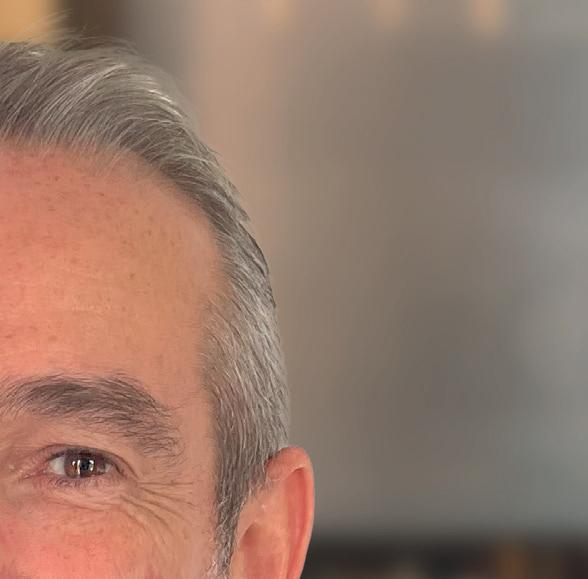







The Atrium Hotel – one of Heathrow’s largest independent hotels – recently upgraded its entire fire safety system without disturbing a single guest.
How? By adopting Honeywell’s cloud-based CLSS platform to deliver real-time visibility, smarter compliance, and uninterrupted safety, even during peak occupancy.
Highlights include:
Round-the-clock, remote fire system maintenance – no guest disruption.
Real-time alerts to staff mobile devices for faster issue resolution.
Automated compliance reporting, simplifying audits and inspections.
We spoke to Frederic Lafon, Senior Manager of Hospitality, Building Automation, Honeywell, to find out more…
What were the unique fire safety challenges presented by a large, always-occupied hotel like the Atrium, and how did Honeywell and its channel partners approach it?
Hotels present some of the most demanding environments to safeguard.
They run continuously, host a high volume of guests, and any disruption, no matter how minor, can affect both service delivery and the overall guest experience.
At the Atrium, one of the largest independent hotels near Heathrow with 573 rooms and steady footfall, these challenges were especially pronounced.
Our task was to support the hotel in upgrading its fire safety systems without interfering with day-to-day operations. In a highoccupancy setting like this, taking spaces out of use or requiring access to guest rooms wasn’t a practical option.
To address this, we collaborated with Amthal, a trusted Honeywell Gent integrator, to deliver a solution that was technically advanced and carefully managed to avoid disruption. At the heart of this approach was our Connected Life Safety Services (CLSS) platform, which enables real-time system visibility, remote testing and event notifications, on and off-site.

Integrating CLSS across the hotel’s fire detection systems delivered a connected, cloud-based life safety solution that functions seamlessly behind the scenes. The result is a hotel that remains focused on the guest experience while having confidence in the reliability and responsiveness of its safety infrastructure.
For those unfamiliar, what does a cloud-based platform like CLSS offer that traditional systems don’t? And how did those features benefit the hotel’s on-site teams?
CLSS is our cloud-based life safety platform, designed to simplify and modernise fire system management. Its ability to provide realtime visibility, automated reporting, and a centralised dashboard, replacing manual checks and siloed documentation, sets it apart. In line with BS8644-1 this outlines best practices for the digital management of fire safety information across all stages of a building’s lifecycle.
For the Atrium, the facilities and maintenance teams could remotely monitor the fire system and receive instant notifications for any faults or changes in device status. This saved countless hours of routine cause and effect, device testing and troubleshooting, and reduced the need for contractors or staff to access guest spaces unnecessarily.
CLSS is our cloud-based life safety platform, designed to simplify and modernise fire system management
It also improved coordination. Both the hotel’s internal team and external service providers had access to the same live system data, which supports faster response times and simplified planning. CLSS enables a shift from reactive to proactive management. In a hospitality setting, where uptime and discretion are essential, visibility is a game-changer.
Compliance is often a major pain point for facilities managers. How did the upgrade improve confidence around regulation and audit readiness?
Compliance is a constant priority for facilities leaders, particularly in the hospitality sector, where fire safety standards are rigorous and reputational stakes are high. We often hear from hotel operators how time-consuming and stressful it can be to prepare for an inspection.
That is why we built CLSS with compliance in mind. Every test, inspection, and maintenance event is automatically logged in the Atrium system. Reports could be generated on demand, giving teams immediate access to all the documentation needed for regulatory checks across the entire site.
The benefit of having this level of transparency and organisation shouldn’t be underestimated. Instead of manually compiling spreadsheets or trawling through logbooks, the team had a live view of their compliance status, and could demonstrate it confidently to inspectors at any time.
CLSS also made it easier to stay on top of regulatory requirements by flagging upcoming test schedules and highlighting any missed actions, helping the hotel team remain ahead of schedule rather than reacting under pressure.
Installation tends to get most of the attention in fire safety conversations. How important is long-term maintenance in the hospitality sector, and how can digital tools support it?
At Honeywell, we always emphasise that fire safety isn’t a one-time installation; it’s a continuous responsibility. While getting the system in place is an essential first step, what matters is how reliably and efficiently it can be maintained over time.


Innovation, sustainability, and reliability - Green Facilities does commercial cleaning better. It’s our dedication to working with you that sets us apart from our competitors. Our commitment starts before we enter your site – and doesn’t finish until long after.



Our Cleaning Services
Leisure centres and health clubs
Offices and co-working spaces
Museums and cultural spaces
Schools and education hubs
Retailers and restaurant
The key is to view fire safety as more than a compliance exercise
Hotels rarely have quiet periods or planned shutdowns that allow routine maintenance without affecting guests. That makes traditional methods, such as room-by-room detector testing, difficult to carry out without causing inconvenience. That’s where platforms like CLSS offer a real advantage.
At the Atrium, the team could remotely check system status, identify specific issues and prioritise maintenance accordingly. Rather than checking every device manually, they could target the areas that needed attention most. This approach not only maintained compliance but also supported the hotel’s goal of delivering a seamless guest experience.
With hotels becoming more digital and guest expectations continuing to rise, how do you see cloud-based life safety systems evolving in the hospitality industry?
The hospitality sector is becoming increasingly digitised, with guest expectations evolving in parallel. From automated check-ins to personalised room settings, the technology behind the scenes needs to be just as responsive, and that includes life safety systems.
We see platforms like CLSS becoming an integral part of modern hotel operations. Beyond core fire system functionality, they can integrate with other building services, enabling more coordinated maintenance, improved energy use, and better overall performance management.
Energy management is also a growing priority. Digital tools that reduce the need for on-site interventions can help limit unnecessary travel and contribute to wider ESG efforts, something increasingly important for operators and stakeholders alike. Ultimately, we expect cloud-connected life safety to become the standard in hospitality. The Atrium is a strong example of what’s possible, and we’re seeing growing momentum across the sector to follow suit.
Finally, what advice would you offer to facilities managers considering a similar upgrade?
The key is to view fire safety as more than a compliance exercise. It’s a strategic investment in the long-term resilience and efficiency of your building. The right system doesn’t just keep you audit-ready, it can also streamline operations, free up your team’s time, and align with your broader digital and energy management objectives.
My advice would be to bring your facilities and maintenance teams into the conversation early. They’re the ones who’ll use the system day to day, so their insight is invaluable. That collaborative approach made all the difference at the Atrium, where we worked closely with on-site teams to ensure their system was tailored to how they work.
And finally, think ahead. Choose a platform that can scale with your needs and adapt to new challenges. Cloud-based systems like CLSS offer that flexibility, making it easier to manage complexity while staying focused on the guest experience.
At Honeywell, we aim to help building operators create safer, smarter, and more responsive environments. We’re proud to have supported the Atrium in doing just that, and we’re ready to help others take that next step.

Men need more support in the washroom to dispose of incontinence waste.


1 in 8 men, rising to 1 in 4 in black men will get prostate cancer in their lifetime. Help men
Dispose with Dignity with phs Male Incontinence Bins. Let’s help men live well.


The unwritten rules: why workplace etiquette still matters, and what FM can do about it
By Oliver Hiner, Director of Operations, Portico
The workplace has undergone a seismic shift in the last five years. Hybrid models are now the norm, organisational hierarchies are flatter, and younger generations, particularly Gen Z, are entering professional life with different expectations and experiences.
Many of them began their careers working remotely, often without the benefit of seeing traditional office behaviours modelled firsthand.
At the same time, facilities teams are being asked to support more than just physical infrastructure.
They are now key players in shaping workplace culture, employee experience, and even brand perception. Yet one area that often goes unnoticed until it causes problems is etiquette. Those subtle behavioural norms – how people interact in shared spaces, engage in meetings, or use technology – have become more fragmented, and the effects are showing.


Why workplace behaviour matters
Take hybrid meetings as an example. When etiquette is clear, meetings run smoothly, with equal participation, minimal distractions, and a sense of shared purpose.
When expectations are unclear, it quickly becomes apparent. Remote colleagues may feel excluded, in-person attendees may dominate, and the meeting becomes less productive for everyone.
The same applies to everyday interactions. A lack of clarity about how to use shared kitchens, book meeting rooms, or take video calls in open areas can create friction. These issues are rarely about the physical space itself. They stem from unclear expectations about how that space should be used.
As facilities professionals, we often see these pain points emerge first. When people behave in ways that frustrate or confuse others, it creates operational noise: repeated complaints, inefficient use of resources, or a sense that the workplace is not working as it should. These may not always reach the level of formal escalation, but they affect how people feel about the environment they work in.
Spotting the signs of behavioural drift
It is easy to dismiss poor etiquette as isolated or informal, but the effects are cumulative.
Signs of behavioural drift might include a rise in no-shows for booked rooms, informal complaints about noise or mess, or disengagement during hybrid meetings. Over time, these small moments start to erode trust, focus, and collaboration.
The challenge is that these behaviours often sit outside formal policies. There is no handbook for how loudly to talk on a Teams call or how long is acceptable to occupy a focus booth. Yet when expectations are unclear, frustration grows; especially in highdensity, high-expectation environments.
A lack of clarity about how to use shared kitchens, book meeting rooms, or take video calls in open areas can create friction
Left unaddressed, behavioural drift can begin to undermine the very culture a business is trying to build. That has consequences not only for performance, but for wellbeing and retention.
How FM can support behavioural clarity
While it may not traditionally fall under the facilities remit, workplace etiquette is now central to performance. Facilities managers have an opportunity to guide and support behavioural norms in ways that are subtle but effective.
Here are five practical ways to do that:
1. Let space speak for itself.
The design and layout of a space can strongly influence behaviour. Quiet zones, collaborative areas, and informal spaces should be clearly differentiated, using cues like furniture layout, lighting, and signage. When people understand the purpose of a space at a glance, they are more likely to use it appropriately.
This goes beyond design. Even small tweaks, such as adding acoustically treated phone booths, providing laptop-free zones, or colour-coding work areas, can prompt better use of space and reduce tension.
2. Collaborate across departments.
Behavioural guidance is more effective when it is reinforced across multiple touchpoints. Working with HR, internal communications, or office managers can help integrate etiquette into onboarding, team meetings, or even visual messaging around the workplace. The aim is not to create rules, but to offer helpful reminders about shared expectations.
This is especially useful for new joiners, many of whom are navigating the office environment for the first time. Having a few clear reference points about workplace conduct, including what’s encouraged, what’s discouraged, can help remove anxiety and promote confidence.
3. Champion inclusive hybrid practices. Hybrid working is here to stay, but it is easy for imbalances to creep in. Facilities and tech teams can help create consistency by ensuring meeting rooms are set up to support both in-person and remote participation. Teams should be encouraged to rotate facilitators, check in with remote colleagues, and make shared documents visible to everyone.
It is also helpful to reinforce habits like being punctual, muting when not speaking, and using chat functions constructively. These might seem basic, but when they are overlooked, the dynamic quickly breaks down.
4. Empower front-line teams.
Reception staff, floor hosts, and guest service professionals are often the first to notice changes in tone or behaviour. With appropriate training, they can respond in ways that maintain professionalism and help reinforce cultural expectations.
These team members are not enforcing rules, but they are well-placed to set the tone and redirect behaviour calmly and constructively.
They also offer valuable insight into how workplace culture is functioning day to day. Their observations can help flag recurring issues that may otherwise go unreported.
5. Pay attention to informal feedback.
Not all behavioural issues show up in formal metrics. Listening to what employees say (or do not say) can reveal valuable insights. If people stop using certain spaces, express reluctance to attend meetings, or regularly raise concerns, there may be a deeper issue linked to etiquette or expectations.
Anonymous surveys, informal check-ins, or even suggestion boxes can surface themes that help refine behavioural guidance or adjust space usage.


Creating a shared experience
Workplace etiquette should not be seen as old-fashioned or restrictive. At its best, it creates clarity, encourages inclusion, and allows everyone to focus on their work without unnecessary friction.
When people understand what is expected, they are more likely to feel confident, respected, and able to contribute fully.
This is especially important in a multi-generational workforce. What feels natural to one group may be unfamiliar to another. Clear, respectful behavioural norms help bridge these differences without forcing anyone to conform to outdated ideas.
Etiquette also supports equity. When the rules are clear and consistently applied, everyone has the same opportunity to thrive; whether they are in the office five days a week or just one.
Final thoughts
The workplace has changed, but the need for shared understanding has not. In fact, in a more flexible and dispersed working world, clarity around behaviour is more important than ever.
Facilities teams are in a strong position to influence this. By focusing on how people use space, interact with each other, and engage with their environment, we can help workplaces feel not just functional, but human.
Etiquette is not about being perfect. It is about making space, literally and culturally, for people to do their best work together.
When people understand what is expected, they are more likely to feel confi dent, respected, and able to contribute fully
Future-proofing workplace dining: Elior at Work
Elior UK’s divisional director for regional business and industry, Calum McLaren, discusses the company’s new B&I regional brand designed to meet the evolving needs of tomorrow’s workforce
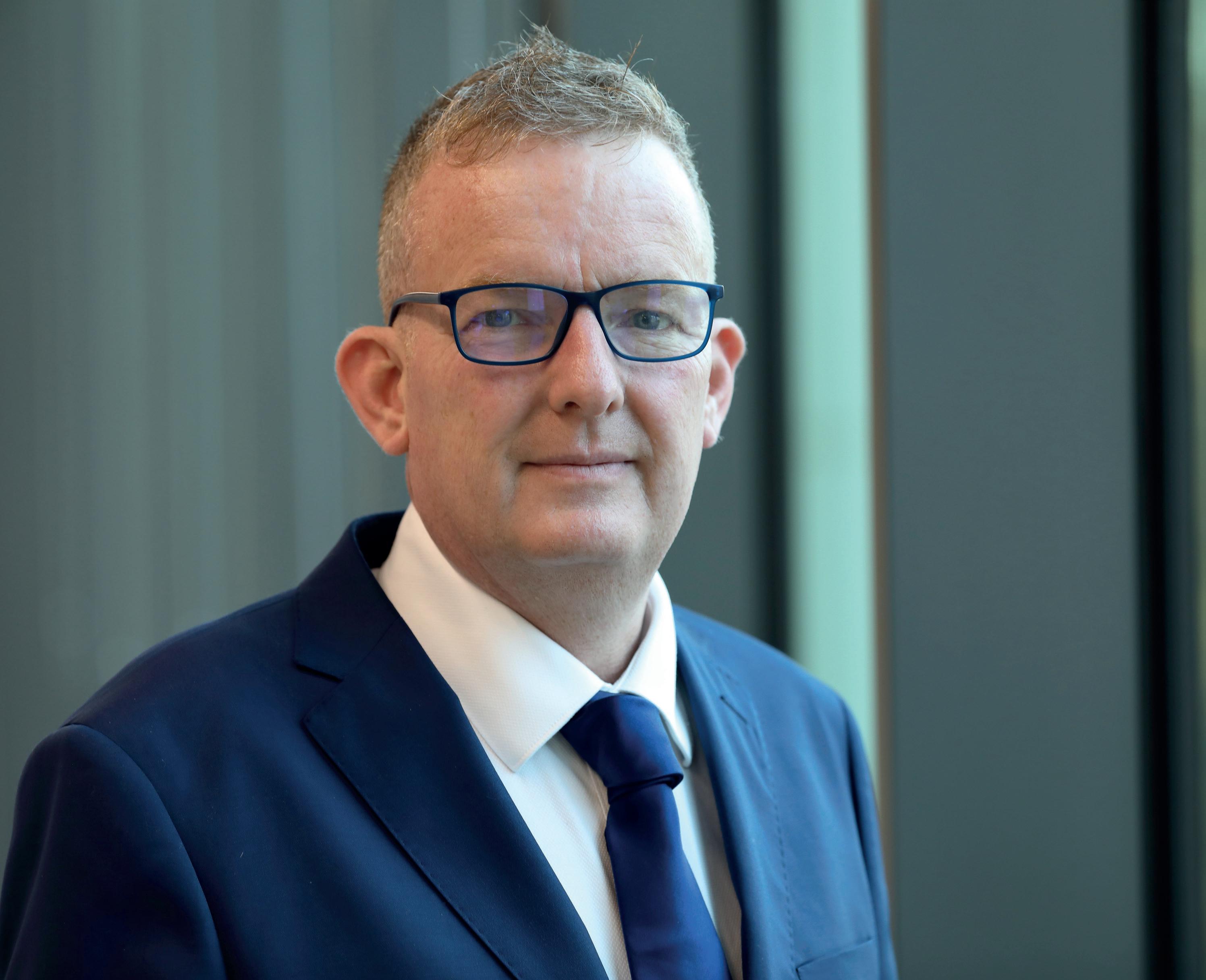
With Generation Z set to comprise 60% of the workforce by 2030, Elior UK has recognised the need to future-proof its business and industry operations.
The result is Elior at Work, a comprehensive new brand that combines nutritional expertise with technological innovation to create a distinct identity within the broader Elior portfolio.
Calum McLaren, divisional director for Elior UK’s regional business and industry division, explained that the brand emerged from extensive market research and customer feedback. “We needed to create a brand that meets the evolving needs of workplace employees now and in the future,” he said.
The 12-15 month development process involved collaboration between the company’s senior team, nutritionists, and marketing experts. “We did a lot of research, we got customer feedback, and it became clear what was important to consumers,” Calum noted.
Meeting generational expectations
The Elior at Work brand focuses on four key areas: quality, mental and physical wellbeing, sustainability and integrated technology solutions.
“Generation Z are huge on sustainability and initiatives such as carbon labelling and are much more eco-conscious than my generation,” Calum observed. “Therefore we wanted to make sure we’re future-proofing the business and meeting customer needs both in the immediate and in the years to come.”
Technology plays a crucial role in the Elior at Work offering, reflecting the digital-first approach of younger consumers. “They want to order their food digitally. They want to have all the information required, whether it’s calories or fibre or any nutritional information, and they’re going to want that at the touch of a phone or the click of a button,” he explained.
The Eatuitive concept
A key component of the new brand is the “Eatuitive” range, which features dishes designed to meet specific nutritional criteria in relation to protein, fibre, and saturated fat content and provides additional educational support to help employees make healthier choices. The concept was successfully trialled at a major manufacturing client with multiple sites, serving both blue- and white-collar workers.
“The client loves it because it hits all the parameters that we need for healthy eating,” Calum said. “
“It was great to see how popular it was with both those in physical and desk-based roles.” He noted that this challenged common misconceptions about workplace dining preferences and previous popularity for more traditional and sometimes less healthy options and highlights the growing desire for healthier options.
Measuring impact beyond sales
Elior at Work’s success is measured not just through commercial performance but also on how it helps employees to thrive in the workplace.
Calum highlighted how the Eatuitive range addresses real workplace health challenges: “People that are in physically

demanding jobs and on their feet all the time are increasingly conscious of the importance of making healthier choices and have really welcomed Eatuitive. We wanted to make sure we’re futureproofing the business and meeting customer needs both in the immediate and in the years to come.
We wanted to make sure we’re future-proofing the business and meeting customer needs both in the immediate and in the years to come

Flexible framework approach
Central to Elior at Work is what Calum described as “freedom within the framework”, a structured approach that allows for regional customisation. “Client needs in Portsmouth might differ to client needs in Dundee or Aberdeen, so we needed to make sure that we had a framework, but within that framework there’s 20-30% movement freedom,” he explained.
Industry positioning
Calum believes Elior is uniquely positioned in the market, sitting between the large-scale operators and emerging smaller companies. “You’ve got the massive companies and then you’ve got all the up-and-coming companies who do some really good stuff, really good food, but they don’t have the advantages of the infrastructure and backing of a larger company” he said. “Elior at Work is positioned perfectly in the middle of the market, so we can have the best of both worlds.”
Personal philosophy
Having worked his way up from a cafe manager at Stirling Castle to a divisional director at Elior, Calum maintains a hands-on approach that is rooted in operational excellence.
“It’s not difficult. It’s just lots of small things you need to do well to be successful, but it boils down to good service and good food,” he said. This philosophy extends to his site visits, where he prioritises face to-face interaction with teams. “I like to visit sites so that I can talk to the teams and really understand how we can support them.”
Looking ahead
As Elior at Work establishes itself in the marketplace, Calum’s focus remains on operational excellence and team development. “The team is critical. The better the team, the smoother the operation and the fewer the problems to solve which results in happier clients and customers which is our ultimate goal.”
With Elior at Work now live and receiving positive feedback from clients and end users alike, it represents a strategic response to changing workplace demographics and expectations.
As Calum concluded: “We want to grow Elior at Work and really establish the brand as the best choice in the marketplace.”
If you’ve got everybody around you succeeding, then your life is much easier than firefighting or having to deal with problems.
If you’ve got everybody around you succeeding, then your life is much easier than firefighting or having to deal with problems



Every hour of cleaning worth more
At JR&Co, we focus on doing things carefully.
Our clients are organisations that are unwilling to cut corners. So, we give their premises our close, undivided attention.
Everything we do is designed to enable our people to focus on their performance. We support our teams with training, technology and fair reward.
We only work in London, which ensures our people and resource are always close. And we never stretch them too thinly. We make sure our managers have time and space to support our cleaners and to respond to your needs.
That level of attention makes every hour of cleaning worth more.
To find out the difference our careful approach can make to your premises, just get in touch.
We’re waiting to give you our undivided attention.



Pump expert shares top summer cooling system tips to keep public sector facilities operational this summer
As the UK enjoys what is predicted to be another record-breaking summer, ensuring essential cooling systems operate at peak efficiency is vital for public sector organisations across the UK

Prolonged heatwaves and higher temperatures expected for summer 2025 will place increased strain on HVAC and pump systems – vital infrastructure that can be overlooked after months of minimal use during winter.
In public sector buildings, a failure of these systems can lead to serious disruptions, health risks or closures.
John Calder, technical director at Dura Pump, has shared his expert advice drawn from over 15 years of experience to help facilities teams stay one step ahead and avoid costly downtime this summer.
Run your pumps early to avoid surprises
In an ideal world, maintenance would be carried out regularly throughout the year, as regular inspections help identify leaks, worn components and loose connections early.
Routine tasks such as filter replacements and system flushing are essential for keeping pumps in top condition and prepared for the increased demands of summer.
“It’s not uncommon for pumps to seize after a period of inactivity.” John explains: ”Running your system early in the season helps uncover these issues in a controlled, low-risk environment, giving you time to schedule routine maintenance tasks before they become urgent, and harder to manage at a time when the pumps are needed the most.”
After months of inactivity, cooling pumps can seize or malfunction when first reactivated, often due to hardened seals, blocked impellers or corrosion. Simply switching your system on when the hot weather hits can reveal hidden faults during peak time.
Check system pressurisation
Getting the pressure right in your cooling system is more than a box-ticking exercise – It is critical to performance and safety. If the pressure is too low, the system may stop working entirely. If the pressure is too high, this may damage pipes, cause excessive water usage, leaks, and shorter appliance life spans. It’s a simple check, but one of the most important on your summer maintenance to-do list.
“Cooling systems rely on a consistent pressure range to function properly”, John adds, “ A failing or incorrectly configured pressurisation unit can lead to airlocks or system failure, both of which reduce cooling efficiency and increase wear.”
Installing pressure sensors can also help monitor performance continuously. Pressure sensors function as a protector, contributing to improving their system performance, extending the pump’s lifespan and reducing energy. With alerts set for pressure fluctuations, facilities teams can catch issues early and intervene before they escalate.
Test and calibrate your control systems
Even the most efficient cooling system can fall short if the control panel isn’t doing its job properly. If your controls are unreliable, it doesn’t matter how well the rest of the system performs.
A full inspection and recalibration of control systems ensures your setup is running efficiently and responding correctly to demand.
Testing control panels, sensors, and automation sequences can prevent future energy waste, and reduce unnecessary strain on the pumps themselves.
“During seasonal transitions, recalibrating your sensors and controllers is key”, John advises.
“If temperature or flow sensors drift out of calibration, your system might underperform or overcompensate, driving up your energy usage unnecessarily, and in today’s climate – both economic and environmental – no organisation can afford that.”
A failing or incorrectly configured pressurisation unit can lead to airlocks or system failure, both of which reduce cooling efficiency and increase wear

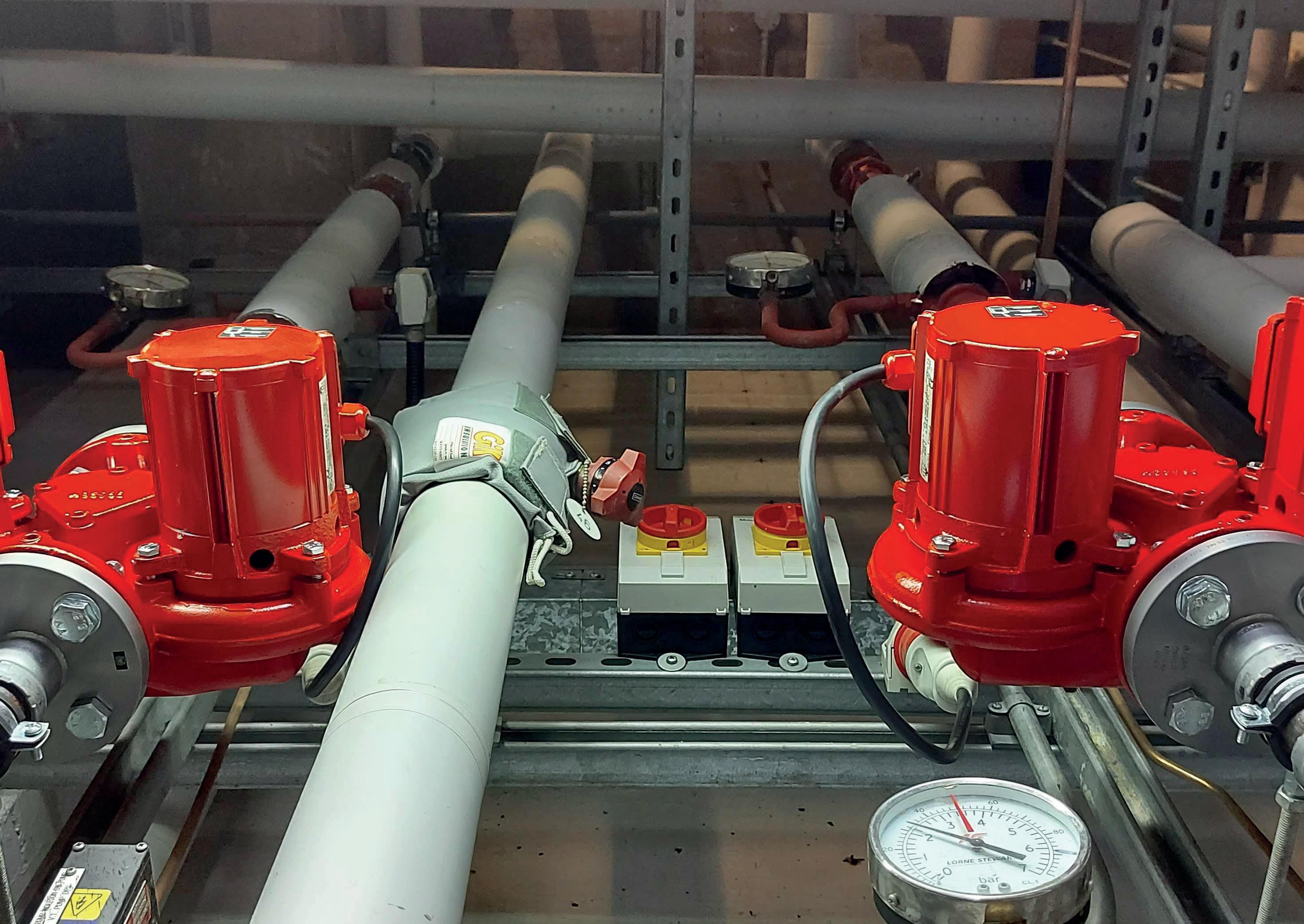
“Whether you’re aiming to cut operational costs or meet sustainability targets, ensuring your control systems are accurate and responsive is a simple and impactful step you can take.”
Check for blockages and circulation
The pumps are the heart of any cooling system, and if circulation fails, performance drops fast. Blockages and airlocks in a cooling system can reduce performance and prevent chilled water from circulating efficiently. Before demand increases, check that your circulation pumps are working properly and that servicing is fully up to date.
“Clogged strainers or airlocks in the system are a major contributor to poor circulation”, Says John. “It’s also essential to check that air vents, filters, and cooling coils are clean and free from dust, dirt and debris, as these can restrict flow and reduce overall efficiency.”
As mechanical systems with moving parts, including electric motors, impellers and belts, pumps should be given a full service ahead of summer to ensure consistent and uninterrupted operation.
When in doubt, call in an expert
Even when a system appears to be working, that does not mean it’s running efficiently. Pumps may be overworked, poorly controlled or simply outdated. Inefficiencies like these can lead to higher energy bills, unnecessary strain, and a greater risk of failure during peak usage.
Professional servicing allows you to assess your system’s performance. Engineers can recommend upgrades such as variable speed drives, smarter control systems or replacement for antiquated belt-driven pumps.
“It’s not just about whether a system works, it’s about how efficiently it runs”, John added, “if pumps are overworked, outdated, or lacking smart controls, there’s a huge opportunity to upgrade to modern energy-efficient technology.
“That means better reliability, lower running costs, and reduced carbon emissions.”
It’s not just about whether a system works, it’s about how efficiently it runs






































































Long-Lasting Protection: Cladding Coatings’ 15-Year System for External Walls and Roofs
When it comes to building refurbishment, longevity isn’t just a bonus – it’s essential. That’s why leading coatings applicators, Cladding Coatings offers an industry-leading 15-Year Guarantee System, designed to protect your property’s exterior for the long haul.
This comprehensive system is a highperformance coating for metal roof and wall cladding. It offers durability even in aggressive environments like C5-M marine and C4 industrial zones, maintaining both aesthetic quality and structural integrity.
Cladding Coatings applicators are skilled team of professionals, ensuring your coating is not only functional but visually flawless.
Cladding Coatings also champions sustainability with an ultra low-VOC waterbased acrylic elastomer formula. With just 8g/litre VOCs, it contributes to safer air quality and a smaller environmental footprint. What makes this system truly exceptional is its array of advanced features:
200% ela sticity for thermal expansion and contraction
Over 2,000 RAL and NCS colours
No abrasive blast cleaning required
Quick application with dry-fall feature
Low odour a nd non-flammable
From office buildings to logistics hubs, Cladding Coatings delivers nationwide coverage, lasting value with minimal disruption to your operations.


Contact for a free no obligation quotation, phone 0161 626 3493, email info@claddingcoatings.co.uk or visit www.claddingcoatings.co.uk






From cyber to strawberries
Why M&S’s viral dessert sandwich highlights the value of crisis comms in restoring consumer trust
With the viral M&S strawberries and cream sandwich dominating social media and news headlines, leading crisis communications expert, Richard Merrin, CEO at Spreckley Partners, reflects on the importance of a clear crisis strategy to restore customer trust when running a business.
UK retail has been under fire this year, with numerous major cyberattacks disrupting operations and exposing customer data across many high-profile brands.
Marks & Spencer was no exception, struck by a significant ransomware attack over the Easter weekend that caused two months of fallout, disruption to online and payment lines and a £300m loss in market value – described as the most financially damaging cyberattack ever suffered by a UK retailer.
However, where M&S has grappled with the fallout in losing customer trust, the viral success of a limited-edition Red Diamond Strawberry & Creme Sandwich may just have turned the tide of customer opinion around.
Pushing through a breach that has cost millions and shaken consumer confidence, the Wimbledon-inspired treat has captured public imagination, sparked a surprising VAT tax debate, and offered M&S a fresh burst of positive publicity amid ongoing challenges.
“When it comes to customer expectations, trust is hard won and easily lost, especially in the retail sector,” says Richard. “For a brand in crisis management mode for a long time, a breakthrough in changing the narrative has done wonders in shifting focus and restoring trust.”
“No business is immune to a cyberattack, and recent activity has highlighted that everyone is a target,” adds Merrin. “For retailers, the operational disruption outweighs the damage from data loss. T
“The attacks caused weeks of downtime, placing significant strain on customer loyalty. Understanding that reputation is a strategic asset to be managed and providing a proactive front with customer support and executive visibility has been key to mitigating the damages long-term.

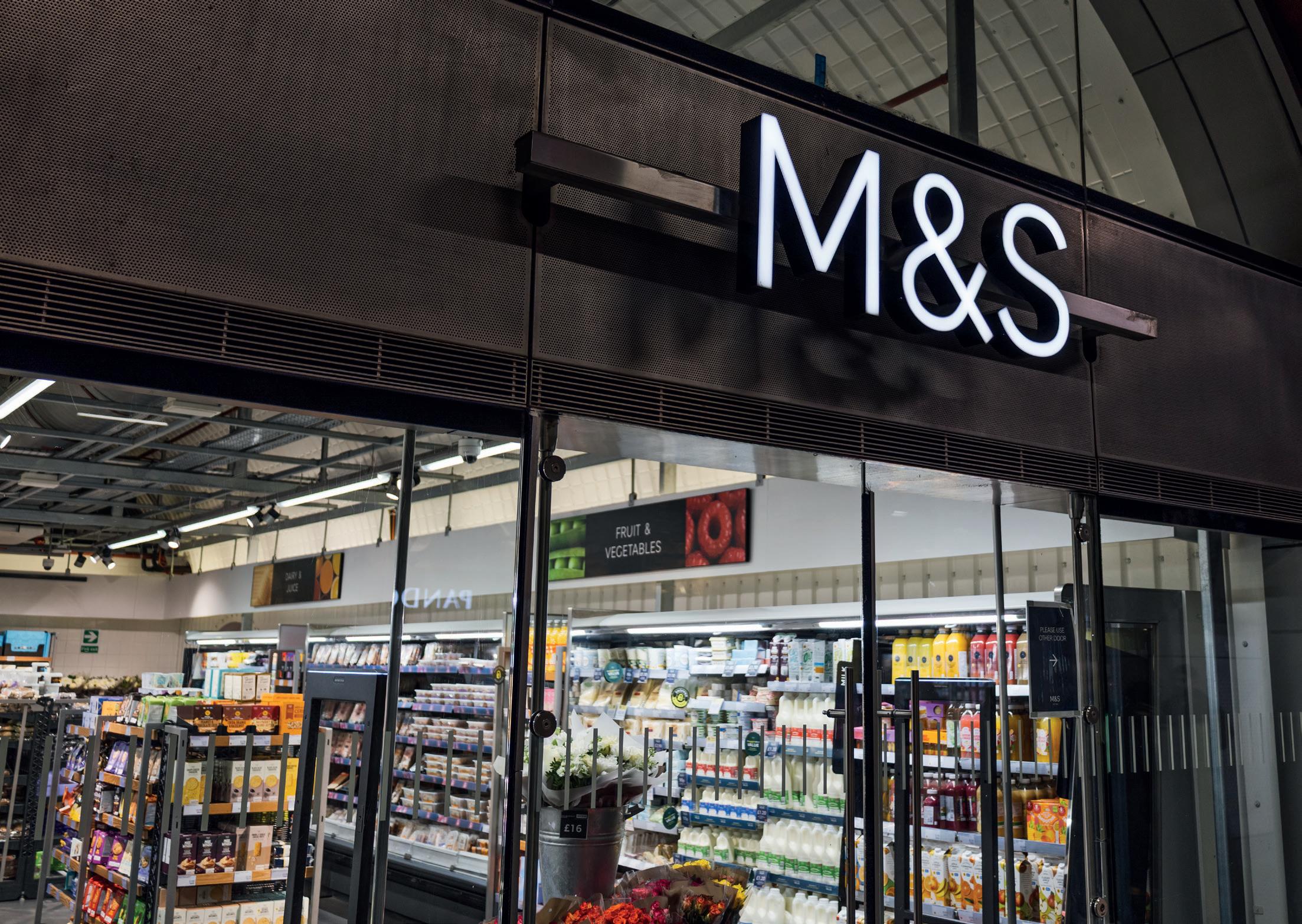
“Lessons can be learnt from the level of communication and acknowledgement. M&S’s strong, visible leadership response was initially reassuring to affected customers, but an initial delay in acknowledgement meant shoppers were already suffering over the initial weekend of the attack. Communicating quickly in the event of a cyberattack is important when it comes to customer data.”
“Quirky food combinations have historically had PR success,” says Merrin. “For consumer retail, an unusual product can quickly pique interest, either being an exotic treat, a play on the expected or just a unique tasting experience – and this ticks all three.
“Any sense of controversy works in line with the premise of the product itself, and we can see extensive national coverage pushing down more negative stories in search results as the conversation moves on through the summer.
“The success of this PR campaign has helped shift the narrative surrounding the retailer. Most importantly, organic hype behind a quirky product has helped catapult it across social media lines for a quirky taste test. This lightning-in-a-bottle food craze cannot be expected for everything, but the rollout displays the value of a smart, targeted rollout to quickly get your customer base talking.
“For more luxury retail brands facing a customer fallout, the buyer base in itself is likely to be more forgiving if you’re able to quickly provide an exclusive product to appease them. Love or hate it, people are going to talk about it, and if they’re talking about this they’ve already moved on from your past mistakes.”
“Cybersecurity and brand resilience are now inseparable,” Merrin concludes. “If your cyber isn’t in place, your brand is sure to suffer in the event of an attack. However, creative approaches to consumer trends such as that demonstrated by M&S can mean the difference between bouncing back from a bad situation or letting it crumple your business completely.
“Keeping a thumb on the pulse of what your end buyer is going to remember is important to reestablishing and retaining trust. After all, the customer is always right.”
Love or hate it, people are going to talk about it, and if they’re talking about this they’ve already moved on from your past mistakes
Demystifying Compliance: The Power of SSIP for Business Growth
By Eleanor Eaton, Chair of Safety Schemes in Procurement (SSIP)


In today’s dynamic business landscape, demonstrating a robust commitment to health and safety isn’t just good practice; it’s a fundamental legal requirement and a strategic imperative.
For businesses across various sectors, particularly those operating within complex supply chains, navigating the myriads of compliance demands can feel like an uphill battle.
This is where Safety Schemes in Procurement (SSIP) steps in, offering a streamlined, efficient, and increasingly vital pathway for businesses to demonstrate their legal requirements for skills, knowledge, experience, and organisational capability.
As Chair of SSIP, I am continually working to promote the benefits of our assessment process, actively reducing health and safety assessment costs and bureaucracy within the supply chain.
Our focus remains on ensuring SSIP remains agile and evolves to ensure health and safety pre-qualification assessment is always fit for purpose.
Proportionate Approach and Unrivalled Visibility
One of the core strengths of an SSIP assessment lies in its proportionate approach. We understand that businesses come in all shapes and sizes, and their health and safety risks vary.
Our member schemes are audited against the SSIP Core Criteria, which define what it means for a business to comply with basic health and safety legislation. This ensures an equivalent level of health and safety competence across the board, regardless of which SSIP Member Scheme a business chooses.
This prevents unnecessary burdens on smaller enterprises while ensuring robust standards for all.
Furthermore, achieving SSIP certification provides invaluable visibility on the SSIP Portal. This central, freely available database lists over 90,000 suppliers registered with an SSIP Member Scheme. For clients, this means quick and easy access to a pool of pre-qualified, competent contractors, saving them significant time and effort in their procurement processes. For businesses, it means being readily discoverable by potential clients actively seeking compliant partners – a powerful marketing tool in its own right.
The Power of “Deem to Satisfy” (DtS)
Perhaps the most significant benefit of an SSIP assessment is the ability to “Deem to Satisfy” (DtS) into all SSIP providers. This mutual recognition principle is the cornerstone of SSIP’s mission to reduce duplication. If a business is certified by one SSIP Member Scheme, that certification is recognised by all other Registered members. This eliminates the need for businesses to complete multiple, often nearidentical, health and safety assessments for different clients who may prefer different schemes.
If a business is certified by one SSIP Member Scheme, that certification is recognised by all other Registered members
The financial and administrative savings generated by DtS are substantial. In 2023 alone, suppliers and clients collectively saved over £68 million through mutual recognition.
This allows businesses to reallocate valuable time and resources from repetitive paperwork to operational excellence and growth, fostering innovation and competitiveness.
SSIP: Accelerating Your Compliance & Strengthening Your Tender Position
The procurement landscape is continuingly evolving, with a clear move towards efficiency and robust risk management. While the Common Assessment Standard (CAS) is gaining traction, especially in the public sector, SSIP’s core mission to reduce duplication and streamline health and safety compliance remains paramount.
The good news for SSIP-certified businesses is that our rigorous health and safety assessments are directly integrated into the CAS framework. This means:
You’ve already met a significant portion of CAS criteria. Your existing SSIP certification directly addresses the health and safety questions within the CAS.
Faster Assessments: Leverage your SSIP certification to significantly speed up your CAS submission. You’ll provide less information and complete the assessment in a fraction of the time.
Enhanced Tender Opportunities: This streamlined approach not only saves you administrative effort but also accelerates your ability to tender for both public and private sector projects that increasingly require CAS compliance.
SSIP certification isn’t just about compliance; it’s about giving you a significant head start, saving you time, and boosting your competitive edge in today’s demanding market.
A Strategic Investment in Your Business
In conclusion, an SSIP assessment is far more than a tick-box exercise. It is a strategic investment that provides clear, demonstrable evidence of your business’s legal compliance regarding skills, knowledge, experience, and organisational capability. Through a proportionate approach, enhanced visibility on the SSIP Portal, the significant benefits of “Deem to Satisfy,” and seamless alignment with the Common Assessment Standard, SSIP empowers businesses to:
Demonstrate competence with ease and confidence.
Unlock new business opportunities by meeting client requirements.
Achieve substantial cost and time savings through reduced duplication.
Streamline and accelerate engagement with the Common Assessment Standard.
By embracing SSIP, businesses are not just meeting their legal obligations; they are positioning themselves for greater efficiency, increased competitiveness, and a safer, more sustainable future within their respective industries.
An SSIP assessment is far more than a tick-box exercise

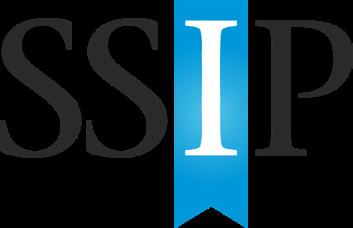
Stop wasting time and money on endless compliance paperwork.
In today’s competitive landscape, demonstrating robust health and safety competence is non-negotiable. SSIP (Safety Schemes in Procurement) is your strategic partner, offering a streamlined, efficient pathway to prove your legal compliance and unlock new opportunities.

Why SSIP?
Massive Savings with “Deem to Satisfy” (DtS):
If you’re certified by one SSIP Member Scheme, that certification is recognised by ALL others. No more completing multiple, repetitive H&S assessments! In 2023 alone, this saved businesses and clients over £68 million.
Proportionate Approach:
Our assessments are tailored to your business size and risk, preventing unnecessary burdens while maintaining robust standards.
Unrivalled Visibility:
Get listed on the central SSIP Portal, a freely available database of over 90,000 pre-qualified suppliers. Be easily found by clients actively seeking compliant partners.
Accelerate Tenders:
Your SSIP certification seamlessly integrates with standards like the Common Assessment Standard (CAS), giving you a significant head start and speeding up your applications for major projects.
competence
competitiveness.

NSS takes flight: why drone surveys are reshaping building maintenance
While the industry relies on traditional inspection methods, maintenance leader NSS – a PTSG Company - is combining aerial technology with proven access solutions to deliver smarter building assessments across Britain

The maintenance sector has long depended on scaffolding, cherry pickers and manual inspections. NSS has now launched a comprehensive drone survey service that works alongside these established methods – and the timing couldn’t be better.
In a sector ready for intelligent enhancement, this move signals a clear evolution: building maintenance is becoming more strategic. NSS now delivers same-day drone surveys that provide crucial intelligence before deploying traditional access equipment. This isn’t just a technical addition – it’s a smarter approach to how inspections should work in the modern built environment.
Making traditional methods more efficient
Traditional surveys often involve weeks of coordination. Operations pause while risk assessments pile up, costs can escalate while maintenance teams wait for access – sometimes to discover issues that could have been identified and planned for in advance.
Meanwhile, unseen problems – water ingress, heat loss, structural faults – quietly worsen, turning routine maintenance into avoidable emergencies. It’s a system that works, but could work much better with proper intelligence.
NSS’s drone service enhances this process. 4K cameras capture every critical detail, while GPS-programmed flight paths ensure comprehensive coverage – all before teams arrive on site with scaffolding or access platforms.
A strategic enhancement with practical benefits
This isn’t just a technology add-on. NSS has embedded drones into its wider maintenance ecosystem. Survey data feeds directly into access planning, enabling more targeted use of scaffolding and cherry pickers, while informing planned maintenance, emergency repairs and cleaning programmes – all delivered by NSS’s in-house teams.
Mike Maloney, from NSS, explains: “While standalone drone providers fly in, hand over a report and leave, NSS integrates every insight into follow-up work using our own access equipment and maintenance teams. This joined-up approach means nothing gets lost in translation.
“Our drone service delivers practical intelligence. Real-time data capture allows assessments during flight, while professional image processing software produces highly accurate measurements for insurance and compliance documentation.
“Every report includes annotated visuals to help clients understand what’s urgent, what’s not, and how best to deploy access equipment and maintenance resources.”
Certified drone pilots operate nationwide, with 24-hour emergency response available. When a client needs rapid assessment, NSS provides aerial intelligence within hours, enabling faster, more informed decisions about access requirements and repair priorities.
Every report includes annotated visuals to help clients understand what’s urgent, what’s not
Our drone service delivers practical intelligence
Solving real problems, not just selling technology
The launch addresses growing challenges in facilities management. With cost, time and safety under constant scrutiny, FM professionals need better ways to plan and prioritise maintenance work.
Insurance firms increasingly require high-quality, timestamped visual evidence for claims processing. Regulators demand stronger compliance records. And with rising ESG reporting requirements, businesses need better ways to track building performance over time.
NSS’s experience delivering complex, technology-enhanced projects for brands like Costco demonstrates the company’s ability to combine innovation with practical execution at scale.
Smarter portfolio management
For clients managing multiple buildings, the benefits multiply. Regular drone inspections create comprehensive visual data, enabling predictive maintenance strategies across entire portfolios while optimising the deployment of access equipment and maintenance teams.
Survey results are stored, compared and shared through centralised systems, helping property teams move from reactive callouts to strategic asset planning. For FM leaders focused on compliance, risk and budget control, it’s a clear advancement.
Competitive advantage through integration
The key advantage is integration. NSS controls the entire process – from drone inspection through to remediation using scaffolding, access platforms and in-house maintenance teams. This reduces coordination overhead and ensures seamless project delivery.
Retailers, industrial operators and property management firms benefit from this comprehensive approach. With NSS, one partner handles assessment, access and maintenance. No juggling contractors. No scheduling complications. No compromises on follow-through.
Scaffolding and cherry pickers remain essential for hands-on work. But for inspection planning, aerial intelligence wins on safety, speed and precision – making traditional access methods more effective, not obsolete.
Industry evolution underway
NSS’s enhanced service model reflects wider changes in the sector. Providers that ignore intelligent planning tools risk being outpaced by those offering faster results, better reporting and more strategic service delivery. Insurance companies already accept drone imagery for documentation. Sustainability teams use aerial data to monitor building performance. The benefits are practical, measurable and increasingly expected. Forward-thinking providers like NSS are establishing new standards. Others will need to adapt or risk falling behind.
Enhanced inspections available now
This isn’t a side service. NSS’s drone enhancement represents strategic evolution, backed by operational capacity, national reach and proven expertise. While others consider options, NSS is delivering results today.
For facilities managers and property leaders seeking faster assessment, better planning and higher compliance standards, NSS offers more than drones. It offers an enhanced approach to how building maintenance gets planned and executed – combining the best of aerial intelligence with proven access solutions and in-house expertise.
For more information visit nssgroup.com/divisions/ maintenance/drone-surveys/

Smarter. Slicker. More Targeted.
Presenting FM Business Daily 2.0.
FM is evolving... so are we! As part of our new look, Business Daily will provide smarter, more targeted news and insights three times per week, on Mondays, Wednesdays and Fridays.
The all-new FMBD newsletter
Three per week
• Monday: hard services and construction focus
• Wednesday: soft services focus
• Friday: a combo of the week’s biggest stories, video interviews and exclusive features from across the FM industry
As our name – FM Business Daily – suggests, we’re still updating our website every single day with all the latest stories and updates from all the FM sectors. Check it out to stay in the loop!
We hope you are as excited as we are about the new look FMBD newsletter, and we’d love you to get in touch if there’s anything you’d like to discuss or feature in an upcoming issue.
Subscribe here

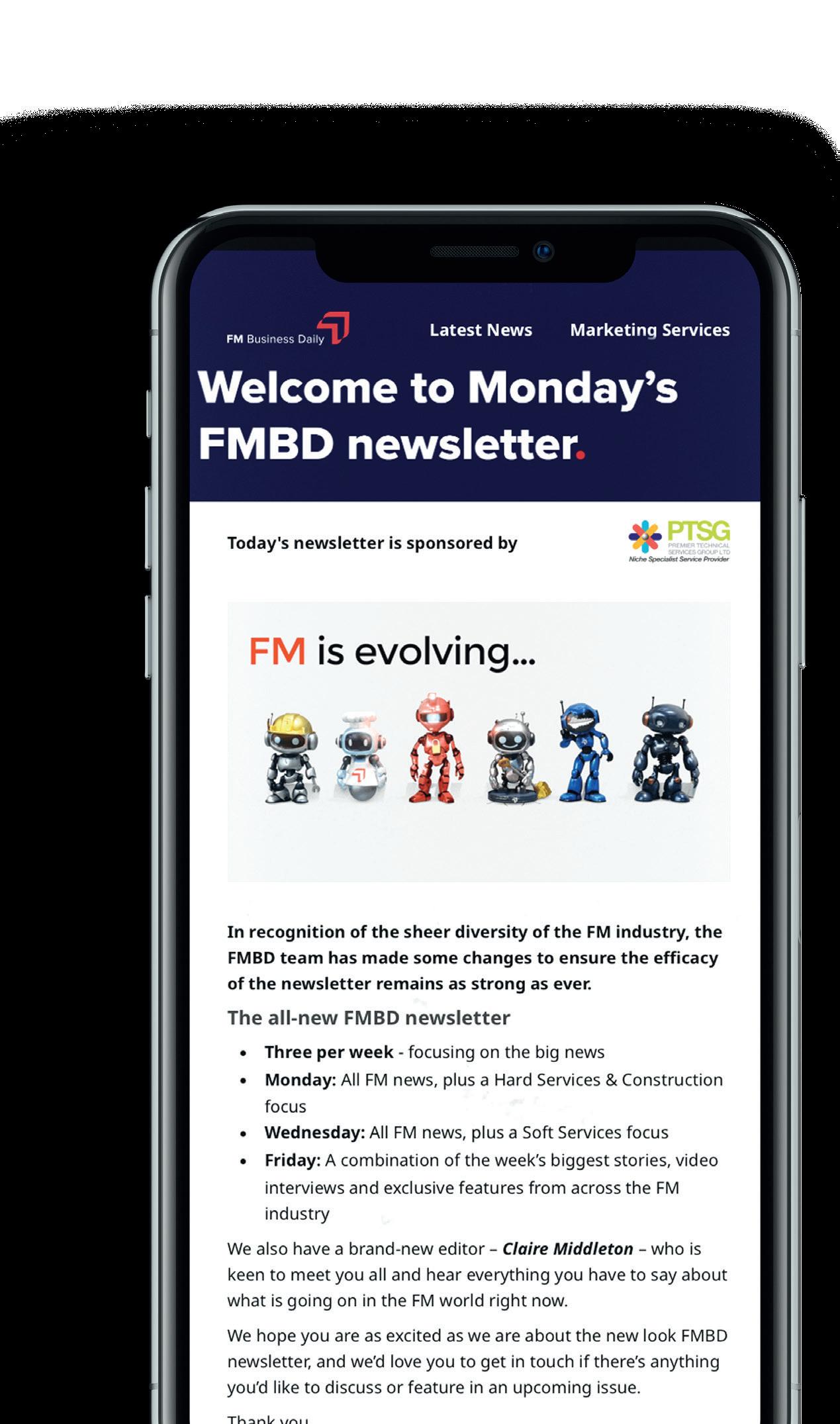
From ground to sky: How PTSG protects the UK’s most critical energy infrastructures


For facilities managers working in the energy and utilities sector, the challenges are as vast as the infrastructure they support.
From solar farms and substations to nuclear plants, water treatment works and offshore wind assets, these environments must operate with absolute safety, minimal downtime and strict regulatory compliance.
With the UK committed to achieving net-zero carbon emissions by 2050 and investing heavily in low-carbon infrastructure, FM professionals are under growing pressure to deliver long-term resilience, efficiency and safety.
Premier Technical Services Group Ltd (PTSG) plays a critical role in this mission. As one of the UK’s leading providers of specialist compliance and maintenance services, PTSG supports facilities managers with what it calls from ground to sky solutions – technical systems and services that protect every level of a site, from belowground earthing networks to rooftop lightning protection and everything in between.
“Energy sites operate under immense pressure,” explains Andrew Dack, Group Sales Director at PTSG. “They are highly regulated, exposed to environmental stress and must operate with no margin for error. Our job is to make sure that from the foundation of a site to its highest point, every system is safe, compliant and future-ready.”


Built for the complexity of modern FM
With more than 3,000 certified engineers, over 300,000 sites under care and an 88 percent contract renewal rate, PTSG brings the capability, flexibility and consistency that energy and utility clients demand.
Whether delivering access systems for a nuclear facility, fire protection in a turbine hall or water treatment for a high-risk site, PTSG enables FM professionals to stay focused on performance, not problem-solving.
“This is not about minimum compliance,” says Dack. “It’s about helping facilities managers operate with confidence, knowing their buildings, systems and people are protected – from ground to sky.”
Earthing and lightning protection: essential but unseen
PTSG’s work in power earthing and lightning protection is foundational to the energy sector. These systems may be out of sight, but they play a critical role in safeguarding infrastructure, personnel and operations.
Power earthing systems are designed to manage fault currents, protect equipment and ensure voltage stability. From soil resistivity testing to full-system design, installation and verification, PTSG delivers solutions that reduce risk and maintain compliance under pressure.
“If your earthing isn’t right, the entire operation becomes vulnerable,” says Dack. “It’s that serious.”
Lightning protection systems, designed to BS EN 62305 standards, shield energy assets from atmospheric discharge. Whether installed on wind turbines or power station rooftops, they’re maintained by ATLAS-accredited engineers trained to operate in complex, highrisk environments.
Energy from waste at Gloucester
PTSG’s expertise was demonstrated at the Gloucester Energy from Waste (EfW) plant at Javelin Park, where it delivered full lightning protection and earthing systems for a facility that exports 14.5 MW of electricity – enough to power 25,000 homes.
The complex steel structure demanded more than 600 internal connections and required coordination across trades, disciplines and documentation. Earthing validation alone involved running leads over two kilometres to ensure accurate resistance testing.
“It was our fifth EfW facility,” says Dack. “It needed deep attention to detail and robust site planning to keep everything on track.”
Trusted by national infrastructure leaders
PTSG works with some of the UK’s most important energy infrastructure providers, including Hinkley Point C, Sizewell and National Grid, supporting projects across nuclear, renewables and conventional power.
This is not about minimum compliance. It’s about helping facilities managers operate with confidence
In the water sector, PTSG provides lightning protection, water treatment and specialist access services for clients ranging from treatment works to national utilities.
Lightning protection for Scottish Water PTSG was contracted to deliver inspection, testing and remedial work across Scottish Water’s diverse asset base – including remote sites in Shetland and Orkney. Engineers completed client-specific safety and hygiene training to gain access, with logistics planned around ferries and adverse conditions. By prioritising repairs into immediate, six-month and longer-term actions, PTSG helped Scottish Water manage its budget without compromising on safety or standards.
“Public sector budgets demand accountability,” says Dack. “We worked collaboratively to deliver compliance in the most cost-effective and transparent way possible.”
More than electrical: a full-service FM partner PTSG’s true strength lies in its integration. It delivers over 170 specialist services across five core divisions, helping facilities managers consolidate suppliers and streamline compliance.

1. Electrical services: Fixed wire testing, emergency lighting, portable appliance testing and specialist systems such as earthing and surge protection.
2. Access and safety: Installation and maintenance of fall protection systems, suspended access equipment, mobile access solutions and compliance checks.
3. Fire solutions: Passive and active fire protection, including fire stopping, alarms, suppression systems, compartmentation and fire doors.
4. Water treatment: Legionella risk assessments, monitoring and analysis, including a recent on-site laboratory installation at a major UK site.
5. Building access specialists: High-level external cleaning, façade restoration and technical maintenance in hard-toreach environments.
“Clients often come to us for a single service like lightning protection,” says Dack. “But once they see our depth of capability, they start consolidating. It’s about eliminating complexity and raising standards.”
Net-zero means more than installing turbines or panels. It’s about how every part of the supply chain contributes to sustainability
Digital visibility through Clarity
PTSG’s proprietary platform, Clarity, gives FM teams instant access to live reporting, certification, inspection history and photographic evidence – across any number of sites and disciplines.
“Clarity gives facilities managers complete visibility,” says Dack. “They know what’s been done, what’s due and what needs action. It removes the guesswork.”
Supporting
net-zero and operational resilience
The UK’s energy system is shifting rapidly, with renewable generation, nuclear investment and digital systems all playing a role.
PTSG’s commitment to carbon neutrality aligns directly with clients’ goals, with greener logistics, smarter scheduling and data-led operations embedded into service delivery.
“Net-zero means more than installing turbines or panels,” says Dack. “It’s about how every part of the supply chain contributes to sustainability – including facilities maintenance.”
A
strategic partner for energy FMs
As infrastructure grows more complex and regulations tighten, facilities managers need trusted partners who can operate with precision, consistency and foresight. PTSG has built that reputation through scale, expertise and an unwavering focus on safety and reliability.
From confined-space water treatment to high-level fire protection, PTSG is helping the UK’s energy sector move forward with confidence.
“When you’re responsible for critical infrastructure,” says Dack, “you can’t afford gaps, delays or uncertainty. Our job is to make sure everything works – from ground to sky.”



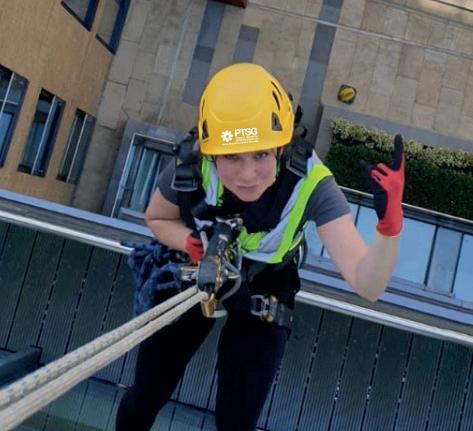




Beyond Compliance: Why Physical Security is Fundamental
to Safeguarding in Education


In today’s educational landscape, safeguarding has never been more critical. It’s a core component of how schools, colleges, and higher education providers are judged, not only in terms of policy but also through the lens of practical implementation.
For facilities teams working alongside school leaders, ensuring that pupils, staff, and visitors are safe is a moral, operational, and now, increasingly, an inspection-driven imperative.
And the stakes are high. In the 2022/23 academic year alone, 64 schools in England were judged by Ofsted to have ineffective safeguarding measures. These weren’t minor oversights – they reflected serious or widespread failures that, for some, included deficiencies in physical security and subsequently led to an automatic (and devastating) ‘Inadequate’ rating.
Those in authority need to be asking a number of key questions to identify whether they are effectively keeping those they’re responsible for safe
In this article, Wayne Hopkinson, Contracts Manager at Business Watch Guarding, explains why safeguarding isn’t just a policy obligation for those working within the education sector, it’s a critical responsibility that directly impacts student, staff and visitor safety, operations, finances, and reputation.
He highlights the importance of education estate teams working with specialists who deliver tailored security solutions – from access control and CCTV monitoring to static and mobile guarding and visitor management.
And he explores common security pitfalls that risk inspection failures, including poor site visibility and unsecured entry points, and demonstrates how a proactive, strategic approach can support those operating across the industry to mitigate these risks.
“Safeguarding is often discussed in terms of child protection policies, safer recruitment, and staff training. While these are all of course vital, the physical environment for both pupils and staff plays an equally important role – and those in authority need to be asking a number of key questions to identify whether they are effectively keeping those they’re responsible for safe. Questions such as: Can unauthorised individuals access the premises? Are any blind spots monitored effectively? Are evacuation and lockdown procedures supported by the right infrastructure?
Without effective physical safeguards, even the best-intentioned policy can collapse under pressure. Access control, CCTV surveillance, guarding services, and visitor management systems are not just ‘nice to haves’ – they are fundamental tools in ensuring that a school is safe, resilient, and compliant with Ofsted expectations.
Every school, college, and university has different needs based on its size, location, population, and existing infrastructure
From our extensive experience in the sector, there are several recurring physical security weaknesses that can compromise safeguarding:
Unsecured Entry Points
Many schools, colleges, and universities have multiple access points, not all of which are actively monitored or locked. This makes it easy for unauthorised individuals to enter unnoticed
Poor Site Visibility
Insufficient CCTV coverage – particularly in outlying areas like car parks, sports fields, or delivery bays – can leave vulnerable areas open to misuse or misconduct
Inadequate Visitor Management
Failing an Ofsted inspection due to safeguarding issues doesn’t just result in a poor report. It can lead to distress amongst staff, a change in leadership, intense media scrutiny, and a loss of parental confidence. For academies and trusts, reputational damage can extend across multiple sites, further impacting enrolment and funding opportunities.
In addition – and hugely importantly – inadequate security places individuals at genuine risk. From broken perimeter fences providing unrestricted access to playgrounds, unmonitored reception areas allowing visitors to enter without proper vetting, and the absence of regular mobile security patrols, leaving large areas of a campus unchecked for extended periods. All of these are not just compliance failures – they’re real threats to the safety and wellbeing of students and staff.
Outdated or manual sign-in systems make it difficult to track who is on site at any given time or ensure that visitors have been appropriately vetted
Reactive Security Models
Some establishments wait until an incident occurs before acting. This approach is not only risky, but also less cost-effective than taking a planned, preventative stance.
The key to addressing these issues lies in adopting a proactive, strategic approach to security.
This means working with experienced providers who understand both the unique nature of educational environments and the regulatory landscape in which they operate.



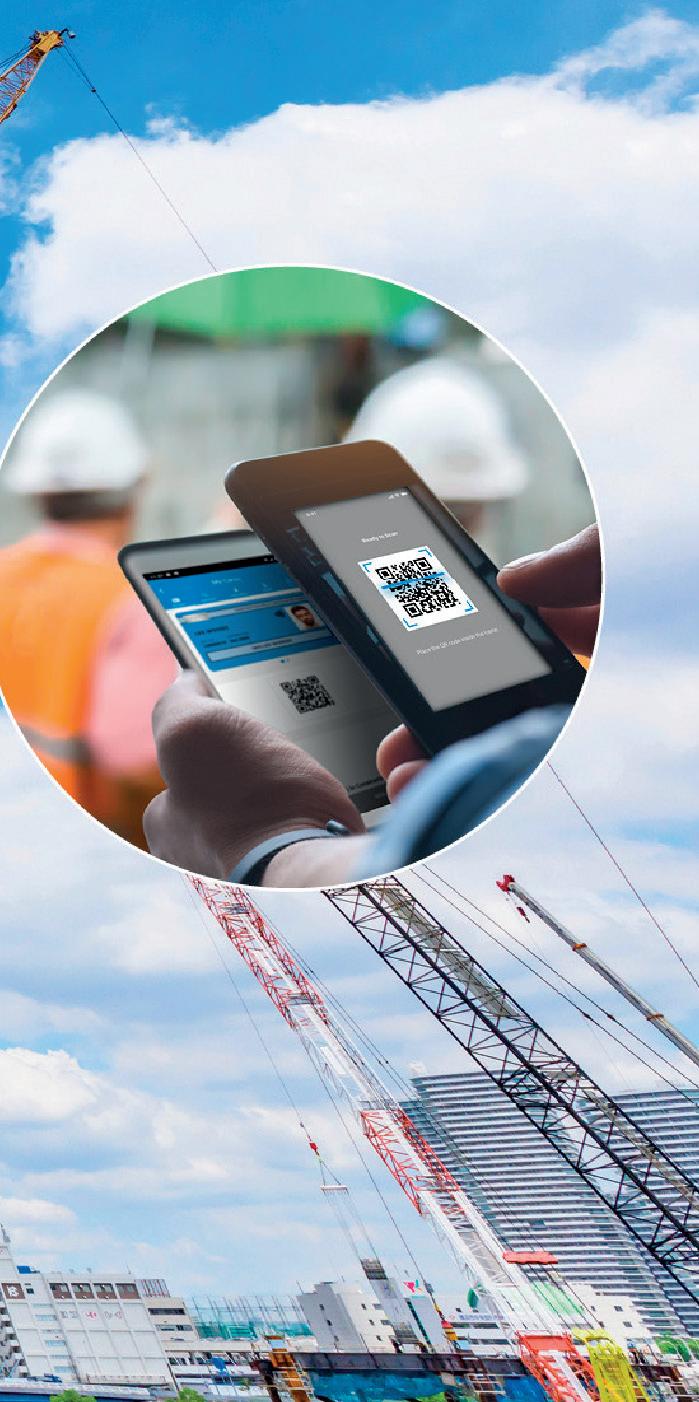
As the premier body for Temporary Safety Systems, FASET is dedicated to ensuring unparalleled safety standards across the industry.
The Future is Digital: Benefits for FASET-Qualified Operators
All our qualifications now exclusively issue digital cards, offering a wealth of benefits:
Convenience: Easily add new qualifications as you progress.
Streamline Your Checks: For Employers and Site Supervisors
Security: Enhanced protection against loss or forgery.
We achieve this through our robust partnership with CSCS, delivering comprehensive training, rigorous assessment, and the issuance of industryrecognised competency cards. enquiries@faset.org.uk
Verify an operator’s competency instantly! Download the CSCS Smart Check App to your mobile device.
Stay Updated: Receive timely alerts for expiry dates and crucial safety notifications.
Every school, college, and university has different needs based on its size, location, population, and existing infrastructure. That’s why any security provider should work in close partnership with education estate teams to identify their specific requirements and then deliver tailored security strategies that integrate seamlessly into the wider safeguarding framework.
Strategies that include services such as:
CCTV Monitoring
High-definition, strategically placed cameras linked to 24/7 monitoring centres provide real-time oversight and rapid incident response
Static and Mobile Guarding
Trained, SIA-licensed personnel offer a visible deterrent, rapid intervention capability, and reassurance to staff, students, and parents alike
Keyholding
& Alarm Response
Security officers provide swift response to any alarm or disturbance
Open & Lock Service
Dedicated mobile patrol officers open and lock premises outside of formal hours ensuring staff safety and peace of mind
Security technology and services are crucial within an educational facility, but they are most effective when part of a wider culture of safety. Facilities managers, teaching staff, and leadership teams must work collaboratively, regularly reviewing risk assessments, testing systems, and training personnel on protocols.
One of the most valuable things an external security partner can bring is perspective. When you’re close to your own environment, it’s easy to oversee vulnerabilities. A specialist team can support educational leaders to ensure that all potential security weaknesses within their premises are identified through the undertaking of comprehensive site audits and the sharing of recommendations for improvements that align with Ofsted’s safeguarding expectations.
Safeguarding in education can no longer be viewed through a narrow policy lens
Investing in robust physical security isn’t just about compliance – it’s about confidence. When pupils feel safe, they learn better. When parents trust an educational establishment’s safeguarding, they’re more engaged. When Ofsted sees well-planned systems and processes in place, they reflect that in inspection outcomes.
Financially, the cost of implementing proactive security measures is significantly lower than the long-term implications of a safeguarding failure. From legal exposure to rebuilding trust after a poor inspection, the true cost of inaction can be immense.
Safeguarding in education can no longer be viewed through a narrow policy lens. It must encompass a holistic view of risk, where physical security plays a central role. The role of a facilities team within an educational establishment is complex and demands constant decision-making across multiple domains, but in a world of evolving threats and rising scrutiny, doing the minimum from a physical security perspective is simply not enough.
By partnering with professional security providers, educational institutions can take control of their environments, reduce vulnerabilities, and demonstrate to regulators, staff, parents, and students that their safety is not just a requirement – it’s a priority.”
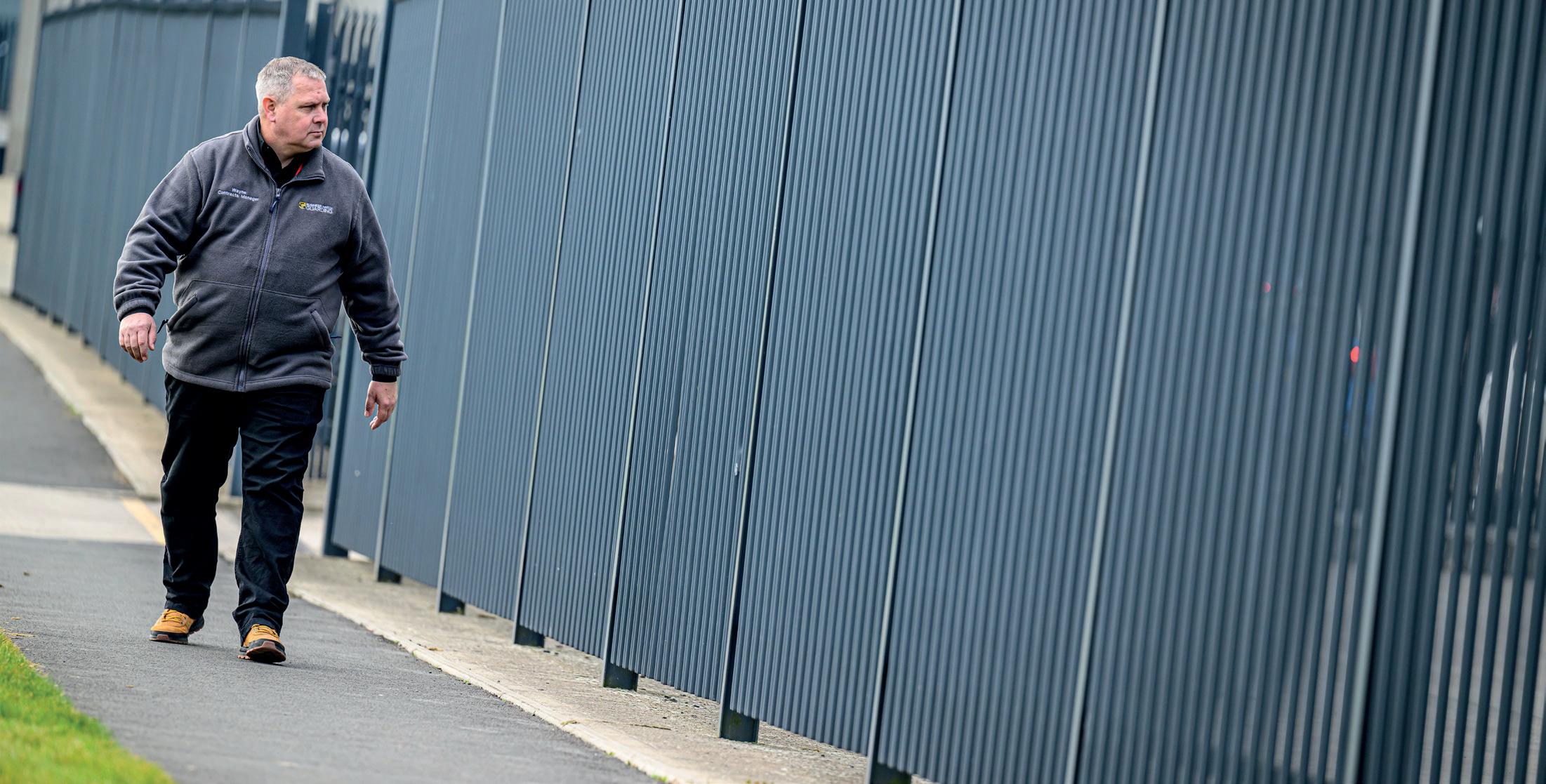
ECO Property Maintenance is an environmentally friendly and cost-effective way to bundle non-business critical jobs of compatible trades.
It is a simple way to reduce the number of attendance fees and lower your carbon footprint for non-urgent works such as minor repairs or minor decorative fixes.
For more information contact info@msl-ltd.co.uk
HOW IT WORKS
Low urgency maintenance issues at the same site are grouped as Eco tasks and stored on the inSYNC portal for up to 21 days.
inSYNC recognises compatible trade tasks and calculates estimated labour timescales to complete.
Any of the following three triggers then apply: A standard priority job is raised - any compatible Eco tasks are bundled to this work order.
Four estimated labour hours are reached to complete compatible Eco tasks - one bundled work order is created
21 days are reached - one bundled work order

Collaboration, Innovation, Trust: How Munnelly Group is Redefining Construction Leadership
Speaking exclusively to FM Director, Paul David Munnelly, Chief Executive of Munnelly Group, discusses the company’s evolution from a single entity to an eight-company group, the challenges facing the construction industry, and his vision for sustainable growth

From its humble beginnings in Harrow, North London, over 45 years ago, Munnelly Group has transformed from a focused delivery specialist into a comprehensive construction and infrastructure solutions provider.
Now led by second-generation Chief Executive Paul David Munnelly, the family-owned business operates across eight companies, serving clients from feasibility and planning through to delivery, handover, and ongoing operations.
Paul’s journey within the family business has been both extensive and expansive, having gained experience across several parts of the operation before recently stepping up to the chief executive role from his previous position as Chief Operating Officer.
Expanding Horizons
The evolution of Munnelly Group reflects the changing demands of the construction industry. “When we started 40 years ago, we were quite focused within one area of the process, which was delivery primarily of vertical buildings within the private sector,” Paul explained.

“But now we’ve diversified to different stages of the build, and also within different sectors whether that’s construction of buildings, rail, road, bridges, energy, nuclear – those sorts of things.”
This has seen the company expand its reach from primarily supporting initiatives and schemes in the London area to working nationwide and sometimes overseas. The growth trajectory has been carefully managed, with Paul emphasising that the company specialises in “providing solutions and services to construction infrastructure, working alongside our client base as a delivery partner.”
A Strategic Relocation
After more than four decades in Harrow, Munnelly Group recently made the significant decision to relocate its headquarters to Kings Langley. Paul describes the move as “bittersweet” given the company’s long history in the area, but explains it represented “an opportunity to mark a milestone for something new.”
The investment in the new office space reflects the company’s understanding of modern workplace requirements. “An office has to be so much more than a desk and a chair and a computer,” Paul noted.
An office has to be so much more than a desk and a chair and a computer


“It has to be collaborative space, it has to be a safe space, and it has to allow for all different types of working, because certainly office work is no longer at a desk behind a screen.”
The new facility has been designed to be “fluid, dynamic, collaborative,” with significant investment in technology to create “a real social, collaborative and high-tech” environment.
Industry Challenges
Paul identifies three primary challenges currently facing the construction industry. The first is confidence in UK investment.
“Recently we’ve seen the government pledge spending to critical infrastructure, which is great because I do think the UK and the major cities need investment,” he says.
Where is the next generation of construction professionals and workforce coming from?
The second challenge is talent retention, with Paul noting that whilst the UK has traditionally been seen as “a really desirable place to work and to live,” other regions have become increasingly competitive.
“We’ve seen other countries and continents actually really become competitive with their offering. There is a lot of talent going to the Middle East, to mainland Europe, to America, to Canada,” he says.
The third challenge is the ageing workforce and skills shortage.
“They don’t teach construction skills at schools anymore,” Paul pointed out. “So where is the next generation of construction professionals and workforce coming from?”
Addressing the Skills Gap
Munnelly Group is actively working to address the skills shortage through apprenticeship programmes and school engagement.
“Apprenticeships are great, and I do believe they are the answer,” Paul stated. “We do a lot of speaking in schools, and I’m a lot more young people are seeing the real value in apprenticeships.
“We also want to show people that working for a construction company isn’t necessarily bricks and mortar. There are lots of other roles there, whether that be in finance or marketing or technology or HR.”
Leadership Philosophy
Paul’s leadership approach centres on collaboration, challenge, and trust. “I’m all about collaboration. I like a challenge and feel that if we’re not trying new things, we’re just standing still. In fact, we’re probably even going backwards,” he explains.
The company’s three core values – collaboration, innovation, and trust – underpin this philosophy. “Trust is really, really important because if you don’t have trust or if you’re not trusted, then you lose that reliability and you lose that ability to help people learn,” Paul added.
“Everyone will make mistakes, but people will learn from those mistakes. The acceptance of that is really important to me.”
Looking Ahead
For the future, Paul is focused on sustainable growth over pure expansion. “Our long-term goals are to continuously grow, but we want to grow in the right way. Big isn’t always beautiful, so having vast turnover isn’t always the desirable outcome,” he explains.
The company’s strategy focuses on several key areas: selective growth, continued diversification, and maintaining financial strength. “We’re debt-free with an overdraft we never use, and having that financial strength, especially in this industry, is super important,” Paul said.
Munnelly Group also maintains an active acquisition strategy whilst developing initiatives in-house through talented personnel. “We’re acquisitive, so we have an M&A strategy which we’re sticking to, but we also like to develop our initiatives in-house ourselves by having really talented people,” Paul explained.
Resilience and Evolution
Paul believes that success in construction requires particular qualities. “To be in construction, you have to be very resilient because there’ll always be challenges,” he says.

He emphasises the importance of continuous evolution, particularly in embracing technology to address industry challenges around investment and skills. “Our industry needs to evolve quicker to deal with those issues,” Paul concluded. “Tomorrow is always a new day and there are always positives to come, even out of adversity.”

We also want to show people that working for a construction company isn’t necessarily bricks and mortar
PTSG Safety Leadership Conference Consolidates Best Practice across Group
On Tuesday 15 July at the Kingscroft Hotel in Pontefract, 80 leaders from Premier Technical Services Group Ltd (PTSG) came together as the Group held its 2025 Safety Leaders’ Conference. This event is vital in an ongoing commitment to continuous improvement in safety across PTSG

The conference was more than a meeting of minds; it was a gathering of leadership to share best practice from across the Group’s five business divisions, to spotlight national and international innovations and to reinforce a shared responsibility: ensuring that everyone arrives home safe, every day.
Dr Greg Ward, CEO of PTSG, said in his opening speech: “Health and safety is central to everything we do. It has to be, because we are a people business – the specialist services we deliver make buildings safe, compliant and clean so that people are protected at all times.
“This conference is a chance for our leaders to come together, share learning and recommit to the behaviours that keep everyone safe. By working together, we strengthen our safety culture and ensure that every one of our colleagues arrives home safely at the end of the day. That’s the standard we set, and that’s the standard we expect.”
Reviewing performance: where PTSG stands and where to go next
An update from Heath Ralphson, PTSG Group Senior HSE Director, on performance in 2024/25 showed that although lost time injuries (LTIs) are reducing, the majority that do occur are related to manual handling and slips or trips.

These,
business.
By working together, we strengthen our safety culture and ensure that every one of our colleagues arrives home safely at the end of the day
A leading initiative within the Fire Solutions division — a forwardthinking, cloud-based hazard reporting system — has logged over 1,900 potential issues since 2022. By detecting risks or near misses early, the team can take swift action to prevent incidents before they occur.
This proactive approach is a key part of our commitment to ongoing learning and continuous improvement in safety.
Embedding a safety culture through proactive leadership
Jim Dawson, HSE Leader for PTSG’s Building access Specialists, delivered a highly engaging presentation which emphasised the importance of a safety culture and taking a proactive approach in all operations.
While he emphasised the importance of reporting hazards, commending Fire Solutions for its proactive, cloud-based approach, he stressed the importance of feeding back on the reporting.
“When people know that hazard reporting leads to an improvement in safety procedures, it encourages best practice and a culture shift takes place,” he explained.
Another important take-away from Jim’s presentation was that risk at work is something that everyone should always strive to reduce. Again, proactivity is endemic in PTSG’s HSE approach.
Training for the future: skills and qualifications that make a difference
Paul Campbell, Group VQ Assessor and Trainer, delivered an impassioned presentation. He encouraged PTSG’s leaders to ensure their teams take advantage of the training opportunities available Group-wide. “Enrolling on an NVQ is a privilege,” he said – to the approval of PTSG’s captive audience.
Courses from bodies such as IOSH, ATLAS, IRATA and SSP equip engineers and operatives with skills that directly support PTSG’s safety-first culture.
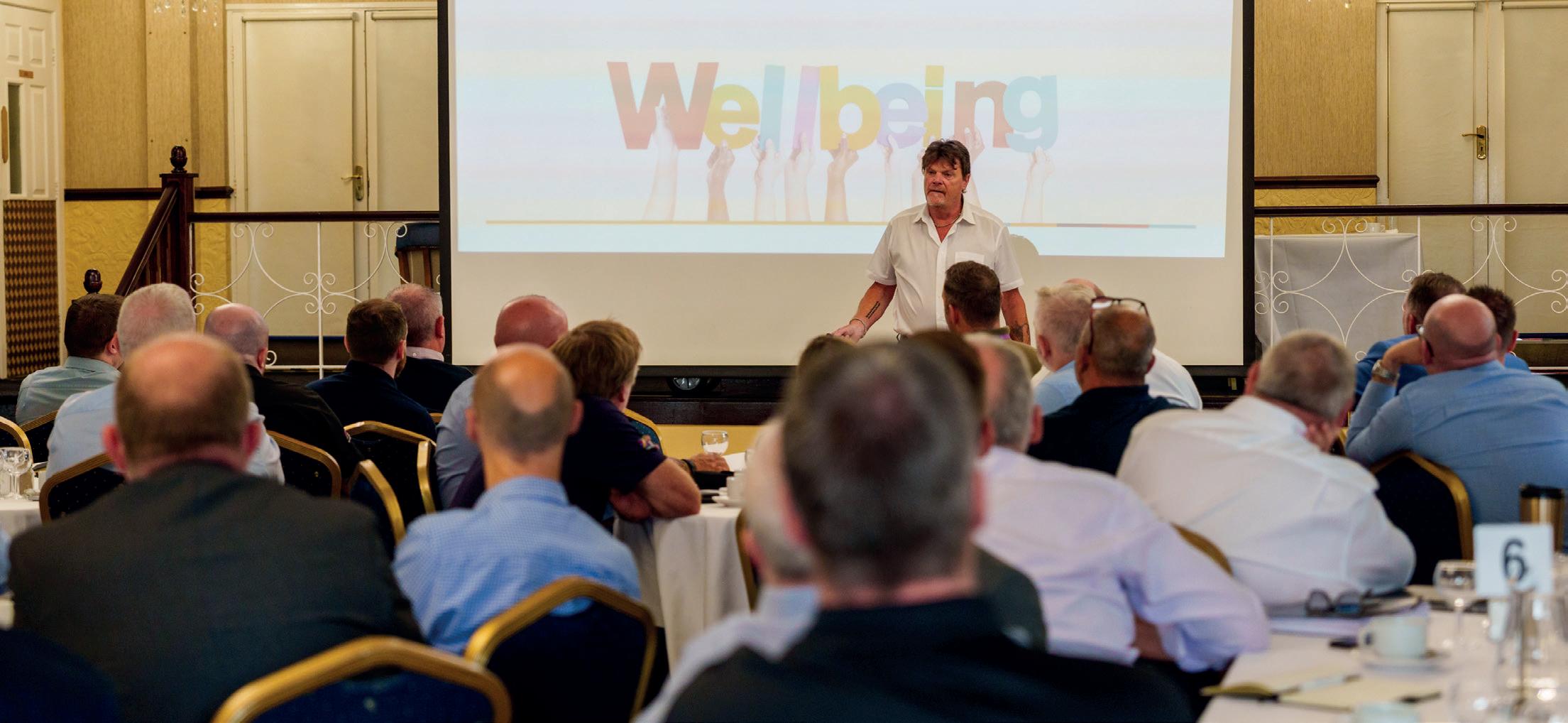
along with high-risk activities like working at height, chemical use, road safety and electrical work remain key areas of focus for the
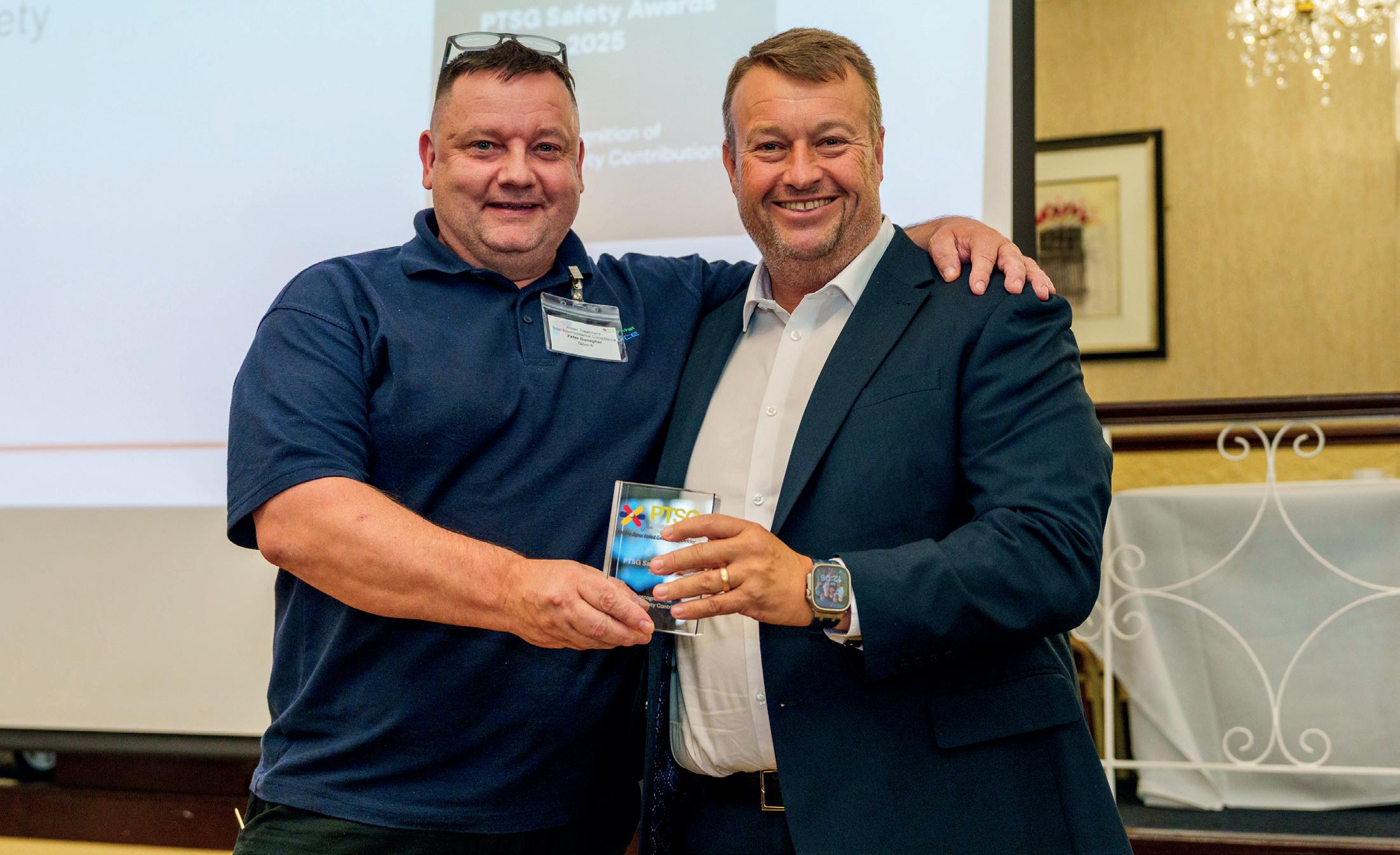
At PTSG, training is seen as fundamental to creating a safe and compliant culture because it empowers people to work safely and responsibly.
Safer on the road: smarter driving through Telematics
PTSG has made a substantial investment in its fleet over the last few months, including the introduction of more hybrid vehicles. At the start of 2025, Lightfoot Telematics began to be introduced in company vehicles.
Telematics technology combines GPS tracking, vehicle diagnostics and data analytics to provide real-time insights into fleet and driver performance. It helps to improve the way PTSG’s people drive, making it safer for both drivers and the general public alike. Improved driving is also more fuel-efficient, as well decreasing wear and tear.
Steve Hardman, Group Fleet and Purchasing Manager, described fleet as “the skin around the body of the company.” He described how the benefits detailed above are being felt by drivers in 1,600 vehicles in the Group, as the roll-out of Telematics nears completion.
Dr Greg Ward endorsed the benefits of vehicle tracking, which in addition to facilitating an overall improvement in driving performance, also protects people, enhances operational performance and reinforces a culture where safety always comes first.
Mental health and wellbeing: creating a culture of care
The final presentation in the Safety Leaders’ Conference placed a strong focus on mental health and wellbeing – recognising that safety isn’t just about physical risks, but emotional and psychological ones too.
Terry Wilcock, Group HSE Director, explored the importance of creating an environment where people feel supported, heard and able to speak openly about their mental health. Through shared learning, lived experiences and practical resources, PTSG is equipping its leaders to foster mentally healthy workplaces, because true safety means looking after the whole person, not just preventing accidents.
PTSG now has 62 qualified Mental Health First Aiders throughout the Group. They are equipped to offer initial support to anyone experiencing mental health difficulties and to guide colleagues toward further help if needed – a vital first step towards recovery. Four additional courses are already scheduled for 2025 across the UK.
When people know that hazard reporting leads to an improvement in safety procedures, it encourages best practice and a culture shift takes place
Outstanding safety practice is awarded
Two people at PTSG went way beyond the call of duty in their work over the last 12 months and they both received an award at the end of the conference to recognised their outstanding performance.
Richard Fernandez-Law received the award for Great Safety Leadership.
A true ambassador for safety, Richard’s “never walk by” attitude, technical innovation and leadership by example have delivered measurable improvements at Trinity, particularly across the Heathrow Airport Contract. From championing safer installation methods to mentoring younger team members and creating controlled environments for safety training, Richard consistently goes above and beyond.
Peter Gallagher received the award for Individual Safety Contribution.
Peter made full use of his health and safety training, keeping his composure to administer CPR to a member of the public who had collapsed at the site where he was working. His prompt and effective response proved successful, with the gentleman regaining consciousness before emergency medical services arrived.
By uniting behind a common goal of making working practices as safe as possible, PTSG can achieve something powerful, a workplace where safety is instinctive, not instructed. A culture where caring for people’s wellbeing isn’t just a message, but a mindset.

Through shared learning, lived experiences and practical resources, PTSG is equipping its leaders to foster mentally healthy workplaces

Breaking Barriers and Building Safety: PTSG Launches New Fire Consultancy
Tracy Gregory, general manager of PTSG’s new fire risk assessment service, brings over three decades of expertise, unwavering determination and a deeply human approach to an industry where both qualities are essential
When Tracy Gregory spotted a job advertisement offering £6,500 per year – just £500 more than she was earning at the time – little did she know it would be the first step in a remarkable 32-year journey through the fire safety industry.
As the newly appointed general manager of PTSG’s new independent fire risk assessment (FRA) service, delivered through constituent business Neo, Tracy represents something increasingly valuable in the built environment sector: expertise combined with genuine human commitment.
Rising through the ranks
Tracy’s career path reads like a masterclass in professional growth. Starting as an office junior covering six different roles in an admin team, she quickly developed a reputation for thoroughness and attention to detail. When she expressed interest in moving to sales, she was initially met with scepticism.
“They asked what experience I had, and I said ‘none, but how do I get it without leaving?’” Tracy recalls. Undeterred, she took on a part-time role selling Tupperware in the evenings and within six months had achieved a company car – tangible proof of her exceptional capabilities.
This pattern of exceeding expectations would become Tracy’s trademark. In her first year selling fire service contracts, she achieved £260,000 against a target of £120,000. She later moved into national accounts, where she faced perhaps her greatest challenge: being a woman in an overwhelmingly maledominated environment.
“Out of 75 customers, only one was female,” Tracy explains. “I could see them wondering, ‘What’s she going to know about fire?’”
Her response was characteristically pragmatic: “I prided myself on saying when I didn’t know something. I’d go away, find out, and always go back to them with answers. I built rapport based on being honest about what I knew and didn’t know.”
Transforming businesses through detail Tracy’s career spans 16 roles in 32 years, with promotions approximately every two years.
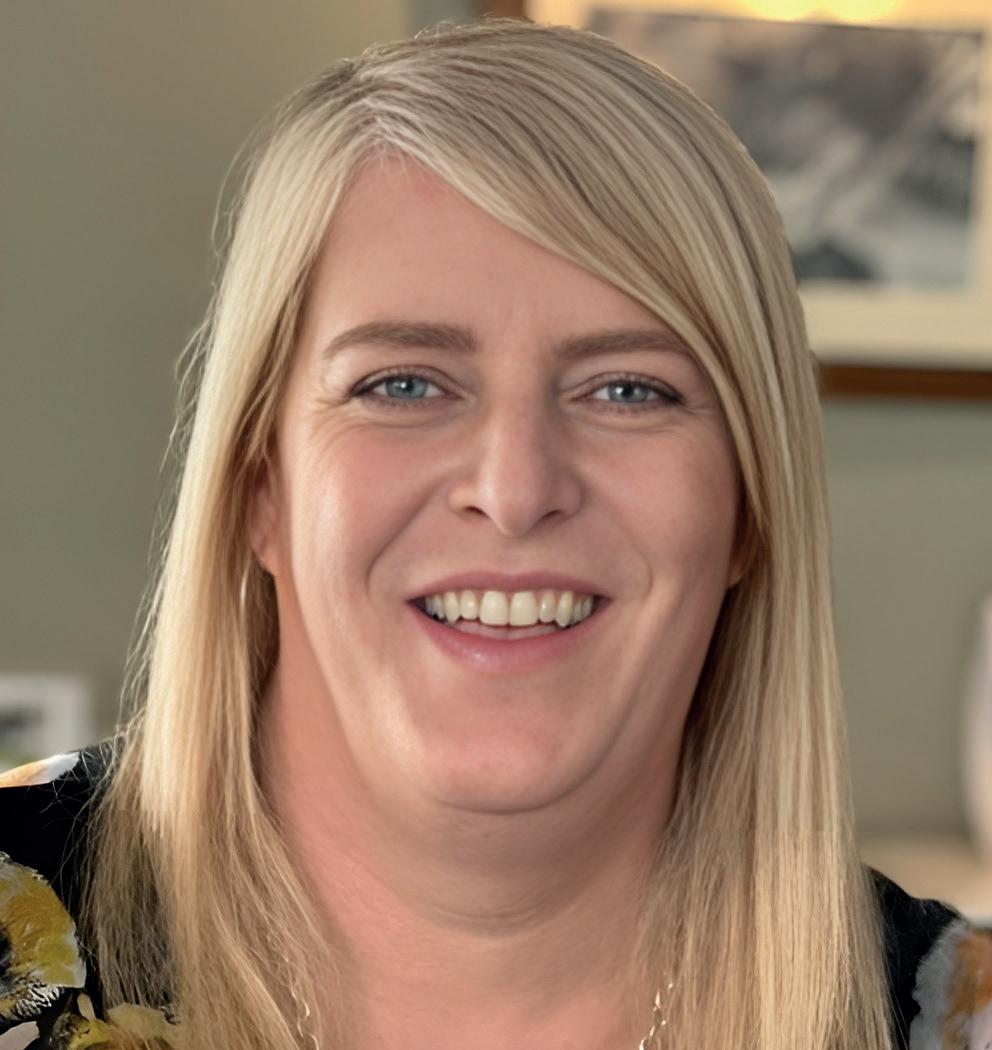
Remarkably, she only ever applied for one position – her first move into sales. Every subsequent role came through recognition of her performance and potential.
Perhaps her most significant achievement was transforming a fire risk assessment business, taking it from £350,000 to £3.5 million in revenue over three years while simultaneously transitioning it from paper-based to digital processes. This wasn’t just about growth but about improving the quality and thoroughness of assessments.
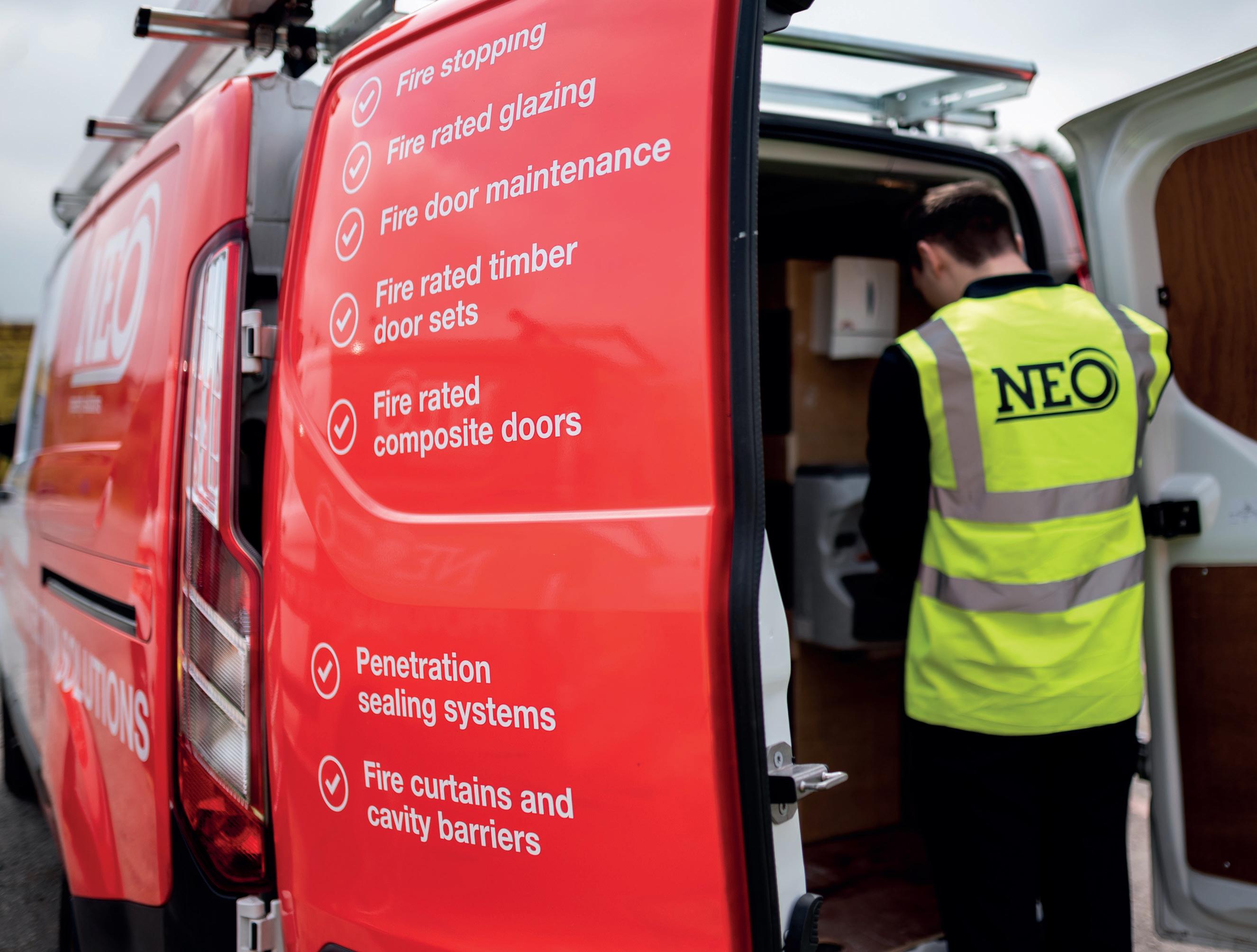
“People don’t always want to listen to the detail,” she observes, “but I say: do it once and do it right. Details pay dividends in the long run.”
This philosophy is particularly crucial in fire safety, where overlooked details can have catastrophic consequences. Tracy has witnessed firsthand the aftermath of preventable fires – businesses permanently closed, jobs lost and lives endangered because basic safety principles weren’t followed.
With fire risk assessments being a legal requirement for all nondomestic premises in the UK under the Regulatory Reform (Fire Safety) Order 2005, failure to carry out a valid FRA not only endangers lives but can also result in severe penalties, including prosecution, fines or imprisonment.
Award-winning leadership
Tracy’s contributions to the industry were recognised when she received the “Business Manager of the Year” award at the women in fire awards in November 2022 – acknowledgment of both her business acumen and her role in a sector where women remain significantly underrepresented.
At industry events, Tracy often found herself the only woman in rooms full of men. “When I started,” she notes, “the women in fire were typically in HR or admin roles. There weren’t many doing engineering or assessments.”
Her success has helped change that landscape, demonstrating that diverse perspectives strengthen safety outcomes.
A community champion
Beyond her professional achievements, Tracy’s dedication to community service is equally impressive. For 13 years, she has volunteered with Yorkshire Air Ambulance, an organisation close to her heart, raising approximately £65,000 through fundraising initiatives.
PTSG is combining deep technical expertise with an unwavering focus on safety and compliance
What began as organising a single charity night has expanded to include multiple major events, creative fundraisers and ongoing awareness campaigns. Her work has helped Yorkshire Air Ambulance extend their operational hours and enhance their lifesaving capabilities.
Leading PTSG’s new independent FRA service
Now alongside Steven Doherty, managing director of NEO, Tracy is leading the development of PTSG’s new independent fire risk assessment service, bringing her wealth of experience to build something distinctive in the market – a truly independent, impartial and expert fire risk assessment offering.
“Fire risk assessment isn’t just about paperwork – it’s about creating genuinely safer environments,” Tracy emphasises. The new service, will focus on qualified assessment with experienced assessors, maintaining clear independence between assessment and remediation to ensure objectivity in all evaluations.
“Independence is critical in fire risk assessment; this new service marks an important step in the evolution of PTSG’s fire offering. With regulations tightening and scrutiny increasing, organisations need a trusted partner to deliver truly independent advice. PTSG is combining deep technical expertise with an unwavering focus on safety and compliance.”
The service will engage organisations nationwide, expanding PTSG’s FRA offering to new customers whilst presenting significant cross-service opportunities for the wider fire solutions business and existing customers.
For Tracy Gregory, every fire safety decision comes back to the human element – protecting people and properties through thoughtful, expert assessment. It’s an approach that has served her well for over three decades and now forms the foundation of PTSG’s newest venture in independent fire risk assessment.
Tracy Gregory is the general manager of PTSG’s new fire risk assessment service, delivered through constituent business Neo. The new service launches on 1 August 2025. To find out more visit www.neo-ps.com

Fire risk assessment isn’t just about paperwork – it’s about creating genuinely safer environments
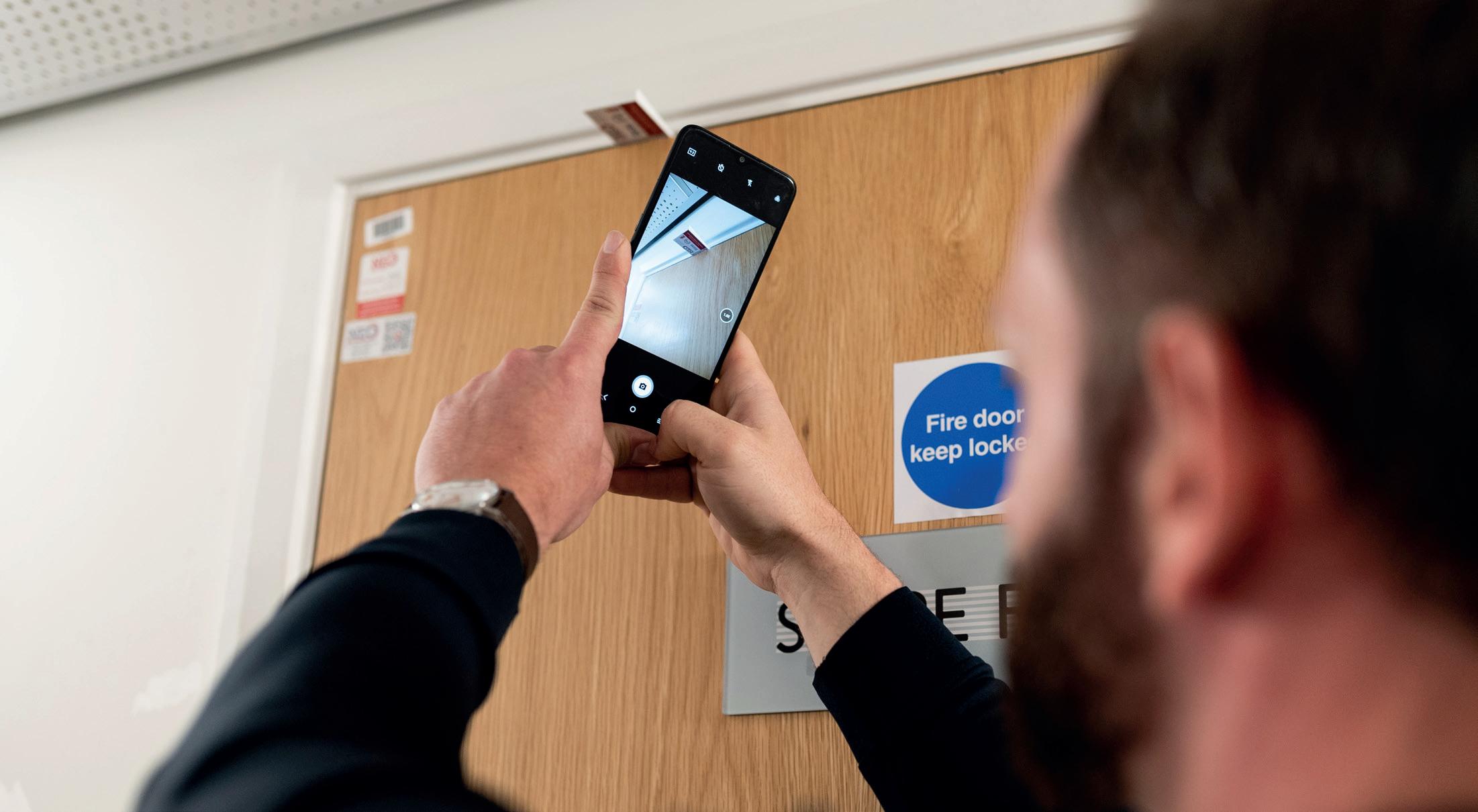
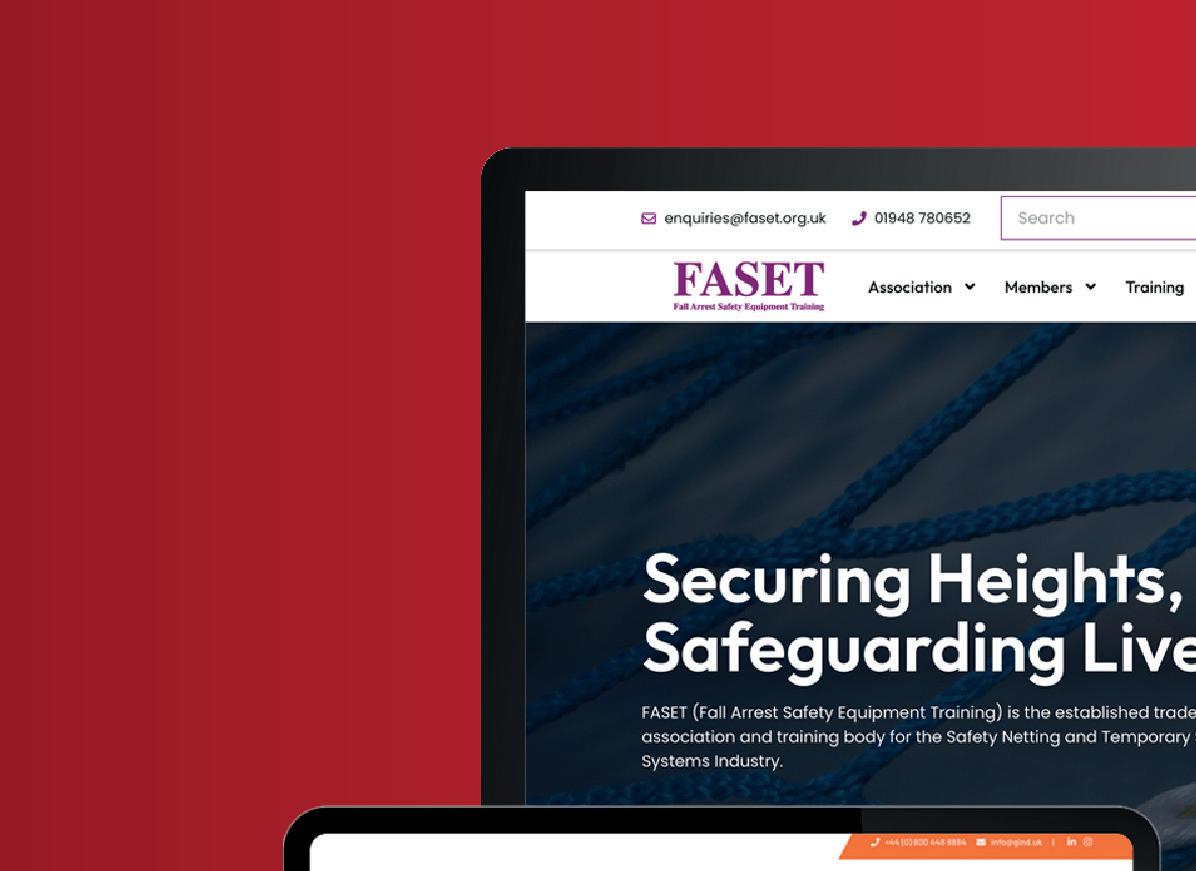


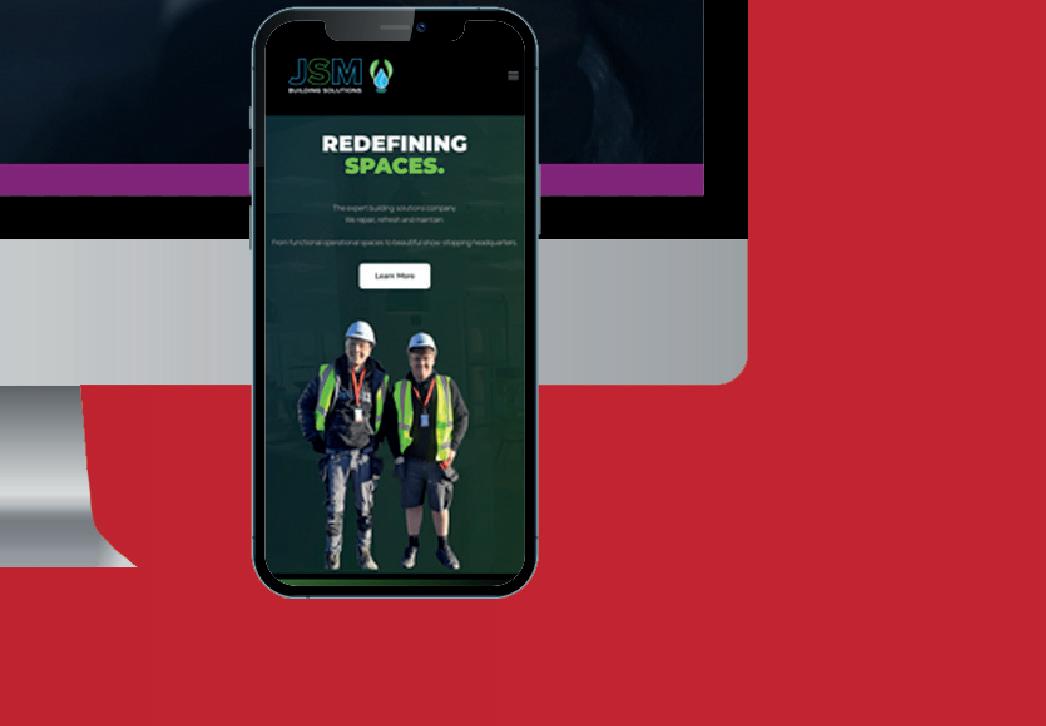

Latest appointments of senior FM professionals
FM Director will publish an overview of the industry’s latest senior new starters and details of their roles in each of its monthly publications

Katie Clemence-Jackson has been appointed as the Chief Executive Officer of Net Zero Carbon Buildings Standard Limited – the company that has been established to own and manage Buildings Standard (the Standard).
The Standard is an initiative backed by the BBP, BRE, Carbon Trust, CIBSE, IStructE, LETI, RIBA, RICS and the UKGBC, which establishes a definition for a Net Zero Carbon Building for each of the main sectors and building typologies in UK real estate.
The Pilot Version of the Standard was published in September 2024, and over 200 individual projects are currently involved in a Programme of testing the detailed application of the rule book against real world issues of design, construction and operation.
In May 2025, an open tender and a PQQ was issued for the appointment of a Verification Administrator in order to put in place a structure for building owners and occupiers to apply for confirmation of their conformity to the Standard, once Version 1 is published at the end of this year.
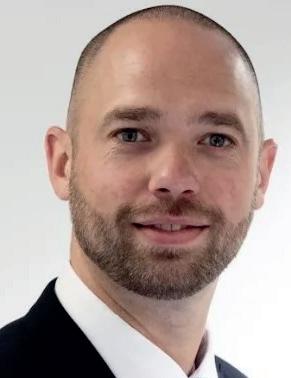
Harmony Fire, the national fire safety engineering consultancy, has announced the appointment of Rob Hutton as Strategic Partnerships Director.
This is the latest high-profile hire in the last month, which also includes Ged Moore joining as Managing Director of the company’s Auro technology business.
Rob brings over 22 years’ social housing experience to Harmony Fire, occupying senior leadership roles at Tier 1 contractors, with specialist expertise in building safety, planned maintenance and retrofit solutions for housing associations and local authorities. As part of the senior leadership team, Rob will be instrumental in shaping Harmony Fire’s customer outreach and engagement strategy, advising on procurement methodologies and overseeing the customer experience programme, with a special focus on maximising social value outcomes.
Rob explained: “Put simply, I’m passionate about the social housing sector as I directly understand the importance of high-quality and safe housing to support a sense of place and the aspirations of individuals and families.

Johnson Controls, a global leader for smart, healthy and sustainable buildings, has announced the appointment of Chris Scalia as executive vice president and chief human resources officer (CHRO). Scalia will report to CEO Joakim Weidemanis and serve as a member of the company’s executive committee.
Scalia joins Johnson Controls after two decades of experience at The Hershey Company, where he most recently served in dual roles as Chief Human Resources Officer and Chief Transformation Officer. Under his leadership and tenure in those roles, Hershey delivered industry-leading performance to shareholders through evolving its portfolio, capabilities, and ways of working as part of a strategy that turned Hershey into a snacking leader. He also led Hershey’s enterprise-wide transformation effort focused on enabling incremental top-line growth, sustained productivity, and adoption of new technologies.

The all-new FMBD newsletter
Monday
Hard services and construction focus
Wednesday
Soft services focus
Friday
A combo of the week’s biggest stories, video interviews and exclusive features from across the FM industry


Helen Hare, director of projects at GPE, has been elected president of the British Council for Offices (BCO) with immediate effect. She succeeds Peter Crowther, chief executive of Tatton Estate and co-founder of HERE.
Andy McBain, head of future of workspace & design at NatWest Group, takes over from Helen as vice president, while John Wright, director at Stride Treglown, becomes junior vice president.
Helen has more than 30 years’ experience in the construction and property industry and is responsible for the design and delivery of all projects across GPE’s development, refurbishment and flex working programmes.
Having started her career as a quantity surveyor, she joined GPE as project manager in 2007 and was appointed director of projects in 2019. She has a proven track record in the successful delivery of major development projects, including GPE’s largest mixed-use development at Rathbone Square in Fitzrovia, 12/14 New Fetter Lane and 33 Margaret Street.
Helen holds responsibility for four teams across GPE and is currently responsible for circa £1bn of new development, refurbishment and fit-out work. In recent years Helen has led her teams to deliver some of the most sustainable buildings in the sector and market- leading circular economy initiatives, delivering and, in some cases, exceeding GPE’s net zero targets.
As well as her deep understanding of the importance of effective design, Helen has a passion for unlocking the potential of young people in the real estate sector.
Security provider Amulet has appointed Edward Holmes as its new development director to support its business growth.
Holmes brings more than 30 years of experience working in the security industry, where he has worked for a range of specialist and national organisations.

Alongside her BCO work, she is a regular speaker at industry events and prior to taking up her presidency role, acted as a mentor for The Circle Partnership; an organisation which seeks to address the gender diversity gap at senior leadership level in the built environment.
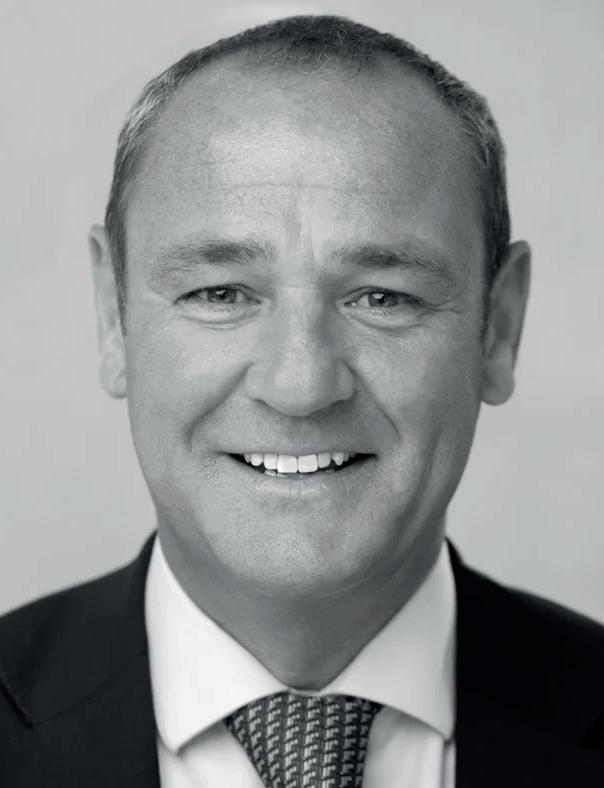
In his new role, Holmes will be responsible for business growth and client liaison, focusing specifically on London and its West End, in addition to the day-to-day management of the sales process.
He has previously held commercial director roles within the security sector, where he was instrumental in designing and delivering on sales processes, generating millions of pounds per annum.
Holcim has appointed a new Managing Director to lead its readymix concrete business in the UK.
The leading UK sustainable building solutions company has appointed Alastair Meyers as its new Managing Director for its Readymix division and as a member of its UK Executive Committee. He will oversee the company’s readymix and mortars business, which comprises more than 80 plants across the country, including a leading footprint in London. Alastair has more than 15 years of experience working across the building materials sector, as well as in the steel industry.
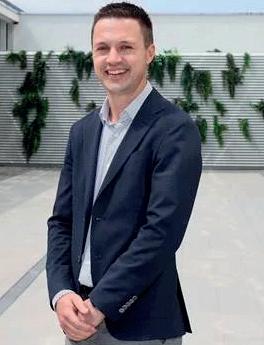
He joined Holcim UK from Tarmac, where he led the Readymix business in Scotland and the North, after previously overseeing the company’s Mountsorrell Quarry, as well as a building products business.
The International Facility Management Association (IFMA) has announced the memberelected executive committee and appointees to the global board of directors for the 2025-26 fiscal year (July 1, 2025 – June 30, 2026).
Christa Dodoo, CFM, FMP, CIWFM, CMQ-OE begins her term as board chair on July 1.
She is joined by First Vice Chair Luis R. Viña and Second Vice Chair Wayne Whitzell, CFM, FMP, SFP, LEED®AP, BEP, GBO, IFMA Fellow. Members of the executive committee serve oneyear terms.
“A strong and compassionate leader, Christa will ensure IFMA remains both a dependable source of information and support, and a beacon to guide and inspire facility managers
as they steer their organizations toward sustainable, resilient practices,” said IFMA President and CEO Michael V. Geary, CAE.
“With years of experience managing multidisciplinary teams and global real estate portfolios, as well as speaking on FM and business trends around the world, she is devoted to elevating knowledge and opportunities for industry professionals.”
Following a successful year, and as a show of commitment to its continued strong growth, PPS, a family-owned and operated supplies business, has announced a sextet of new hires across a variety of its core departments.
PPS is one of the North of the UK’s leading distributors of supplies with a vast client range primarily within the facilities management, hospitality and education sectors. The firm, which has its headquarters in York and a second site in Keighley, has welcomed the new team members as part of its ambitions to target significant organic growth in its new financial year.
Specifically, the business is aiming to boost and reinforce its ‘customer-first’ approach. This includes its commitment to providing a maximum two-day delivery service for the entirety of the North of England and its dedication to offer clients access to support and assistance from real people, at a time where many businesses are shifting towards AI-led customer services.

With this, the six hires have also been made strategically, encompassing different disciplines and levels of seniority, in order to help meet its business goals.
Adam Walker, Sam Metcalfe and Matthew Cross all join as drivers to bolster PPS’ delivery services and guarantee the firm meets its maximum two-day delivery promise. While Mia Prichard joins as a new Customer Service Advisor to complement and enhance the existing customer services team and help ensure the company’s clients can access the support they need.
The two new senior team members are Erin Brennan (pictued), who joins as Customer Service Manager, bringing with her over a decade of experience in leading customer experience across a wide range of businesses, and Rob Gammon as Regional Account Manager. Erin has made the move from Evri where she was a Customer Experience Quality Assurance Team Manager and was responsible for developing quality management systems and processes. While Rob has moved from competitor Alliance Disposables, where he was a Business Development Manager for over a decade.
Speaking about her new role, Erin Brennan offered these comments: “I joined this family-run company because of the genuine investment it puts into its people and the strong, values-driven culture that sets it apart. What really stood out to me was reading ‘we’re very good, but we’re not perfect’, on the website—it showed honesty, humility, and a dedication to continuous improvement that I deeply respect.”
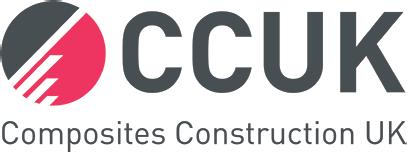
Specialist contractor Composites Construction UK operates throughout the UK and Europe. Using innovative methods, we carry out structural strengthening and repairs to concrete, timber, and masonry structures. contact@fibrwrap-ccuk.com www.fibrwrap-ccuk.com 01482 425250

Integral Cradles Ltd. delivers permanent façade access solutions across the UK, specialising in high buildings with unique specifications and demands. A whole life-cycle solution. kevin@i-cradles.com www.i-cradles.com 0845 074 2758
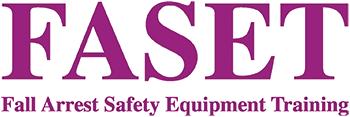
FASET is the established trade association and training body for the safety netting and temporary safety systems industry. We support members with guidance, training, and exclusive benefit schemes. enquiries@faset.org.uk www.faset.org.uk 01948 780652

For almost 30 years Julius Rutherfoord has been passionate about providing professional cleaning services to some of the most prestigious organisations in the London area.
info@juliusrutherfoord.co.uk
https://www.juliusrutherfoord.co.uk/ 020 7819 6700

GIND UK delivers ambitious projects in challenging environments. Our London-based engineering and design team specialises in bespoke access system maintenance for the world’s most iconic buildings. info@gind.uk www.gind.uk 0800 448 8884

Lemon Contact Centre is a leading contact centre for the FM industry. Leveraging 20 years’ of expertise, our 24/7 contact centre services provide unparalleled flexibility, scalability and resilience for your business.
Lemoncontactcentre.co.uk 0800 612 7595

neutral carbon zone (NCZ) is a full-service platform that gives you the tools your company needs to make the transition to a carbon neutral business and beyond. gozero@neutralcarbonzone.com www.neutralcarbonzone.com 0845 094 5976

SAEMA has a long history in delivering the best training and guidance in the temporary and permanent suspended access industry. We are committed to advancing safety through raising the standards in best practice. info@saema.org https://www.saema.org/ 01948 838616
Project Management Global is a media platform and community for professional project managers. Providing informative news, industry insights, career support, resources and jobs for project managers across the globe. news.pm-global.co.uk

Seddon Management Services strives to offer the best solutions for trade associations to keep their members safe and compliant. becky@managementandauditing.co.uk www.seddonmanagementservices.co.uk 07854 226251
Premier Technical Services Group Ltd (PTSG) is the UK’s leading provider of specialist services to the construction and facilities management sectors. info@ptsg.co.uk https://www.ptsg.co.uk/ +44 (0) 1977 668 771




YorPower is one of the industry’s most trusted providers of back-up power solutions (generators and UPS) for customers in a wide variety of sectors, both in the UK and around the world. sales@yorpower.com www.yorpower.com 01977 688155

Over 9,000
people have connected with us on LinkedIn reaches 250,000 daily subscribers is read by 30,000 FM professionals monthly
We organise in-person and online roundtable events designed to sit you next to the people who matter most to you
Talk to us about how our websites, online sales activity and social media team can help you to win work 24/7
Let us take your work winning profile enhancement activities to a place that you don’t yet know exists! We drive enquiries!
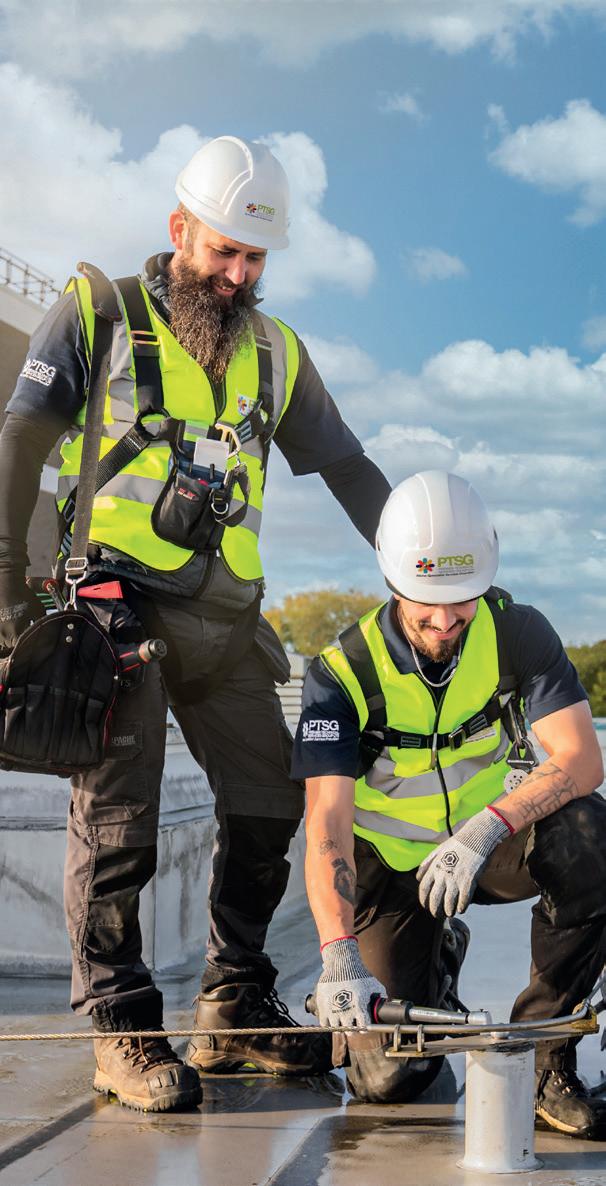
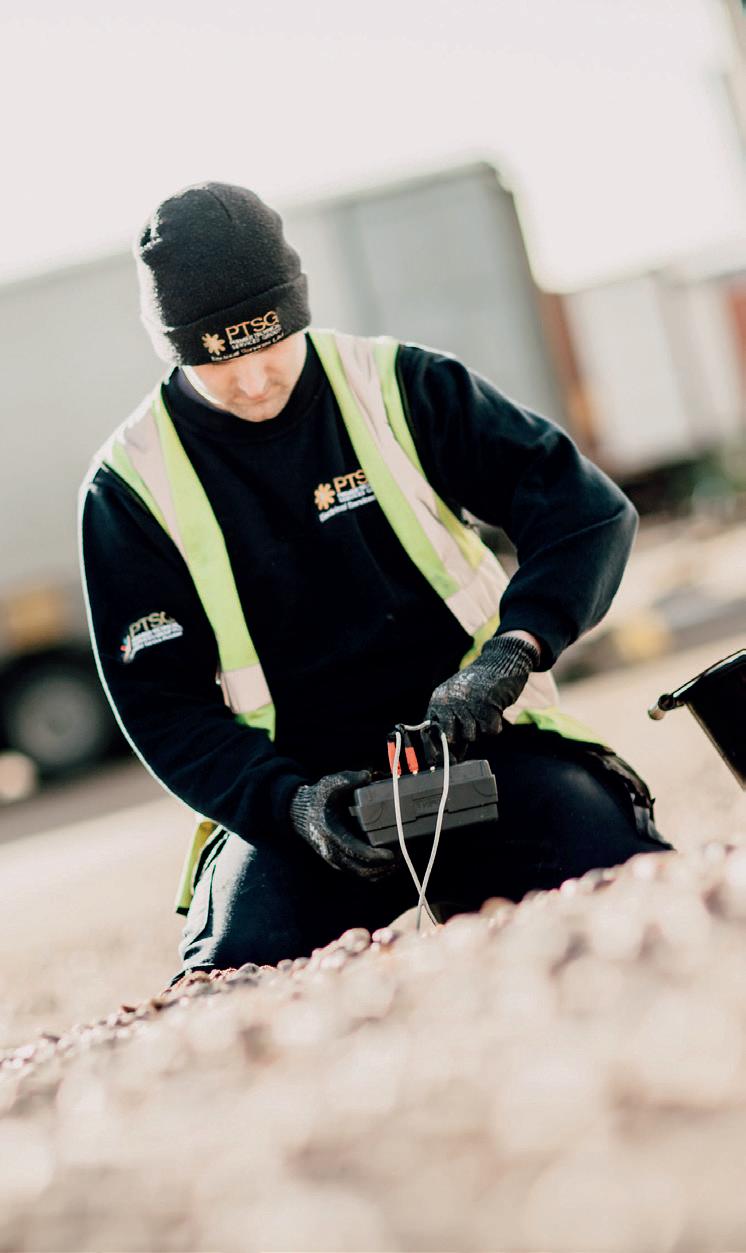



We offer integrated, multi-discipline solutions through a single point of contact. Our customers increasingly value simplicity, efficiency and joined-up service – and that is exactly what we deliver. Whether it is electrical compliance, rope access maintenance, fire systems or water hygiene, we take care of it all – in-house, under one roof and with absolute accountability.
If you need a partner who can handle your entire specialist services requirements, talk to PTSG.
Contact us today for a free, no obligation chat about how we can help you to keep your buildings safe and compliant.

